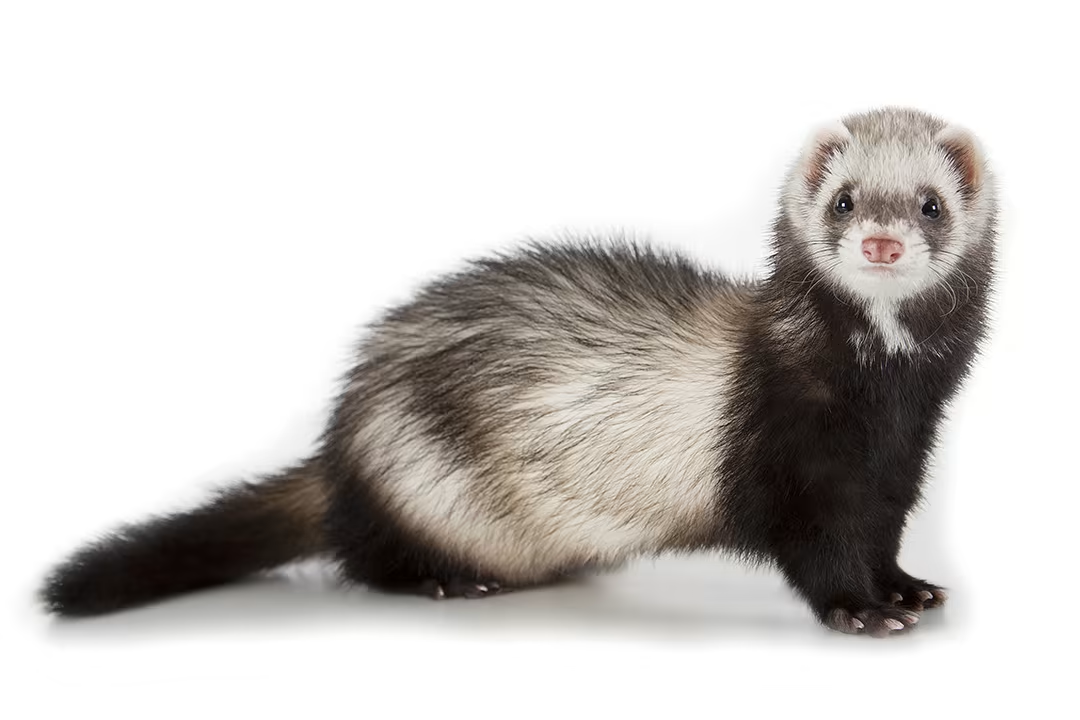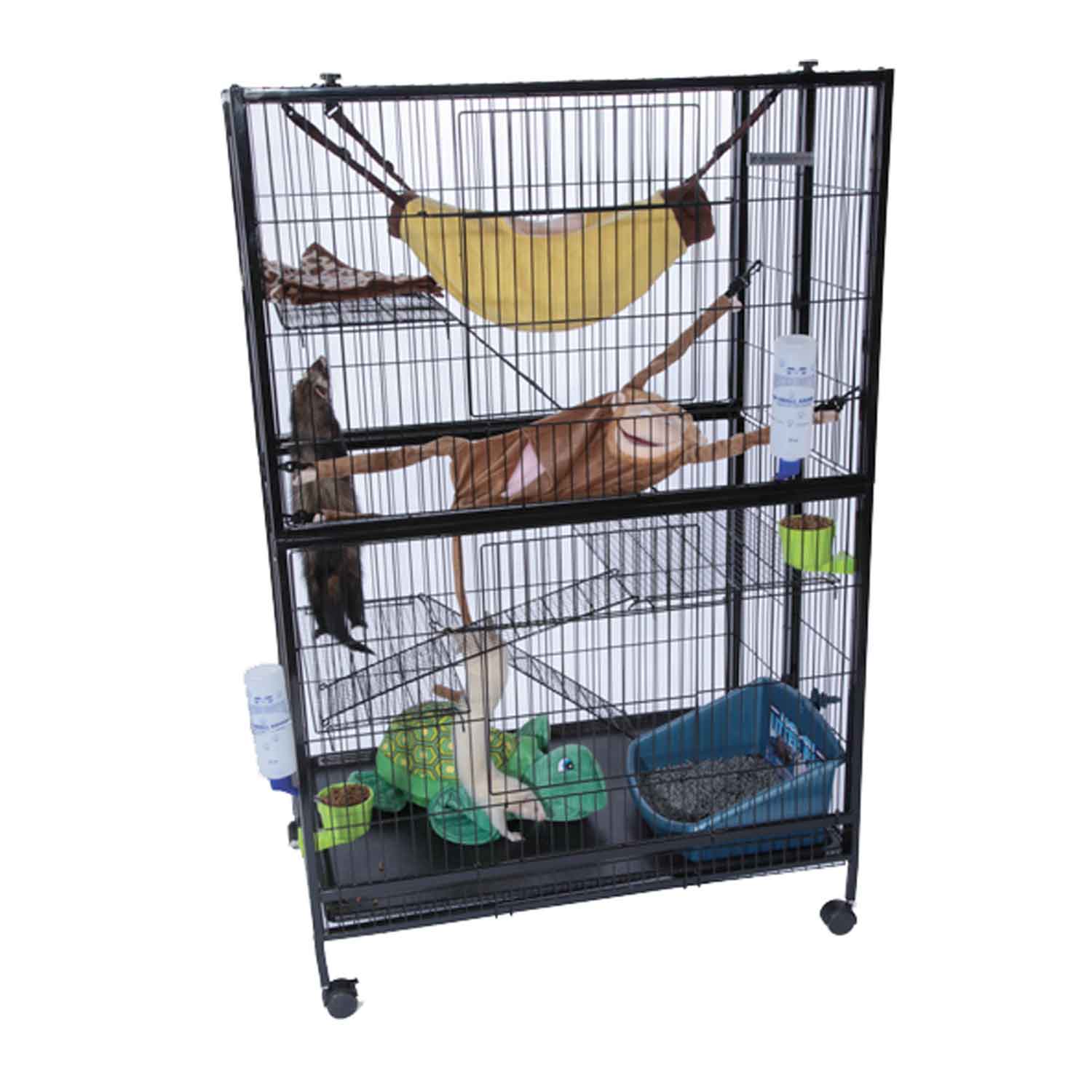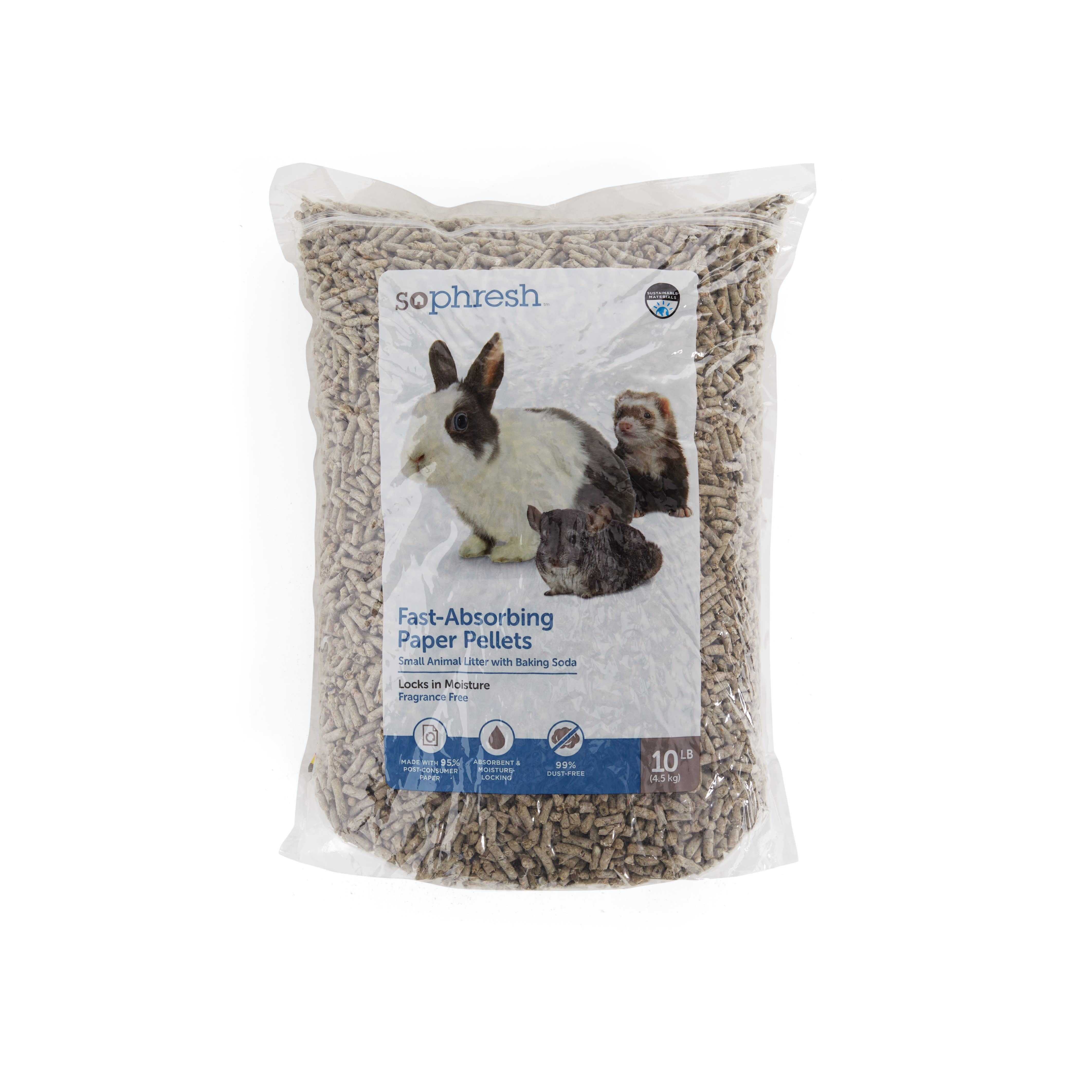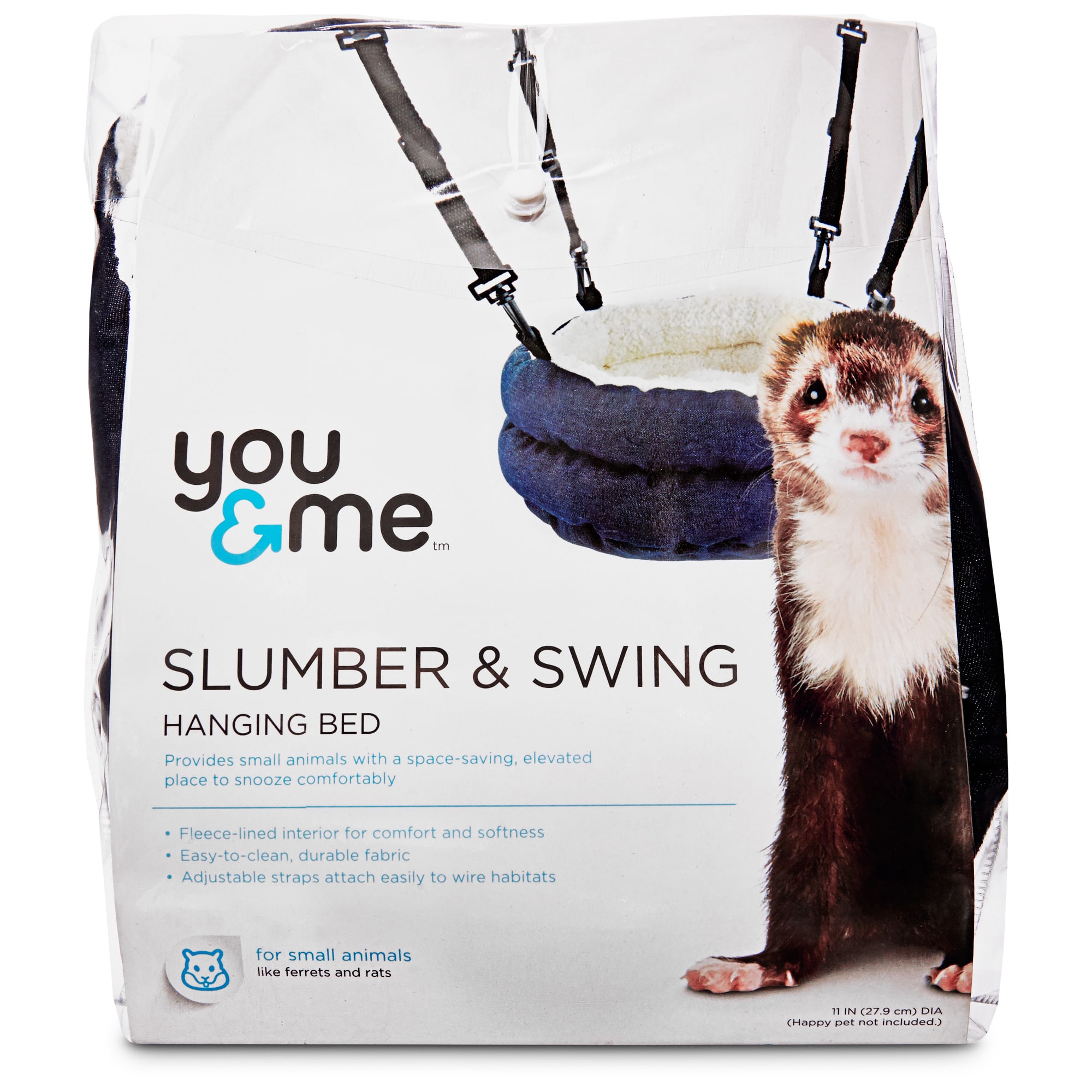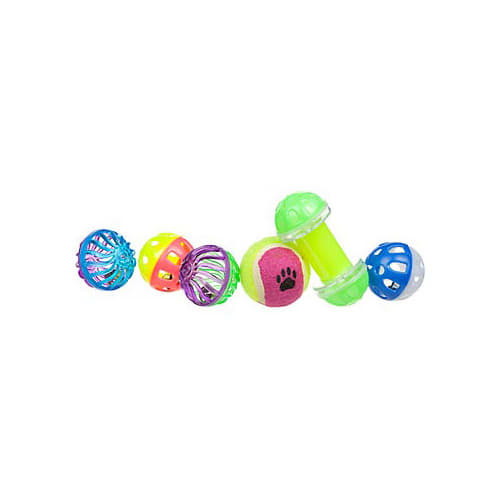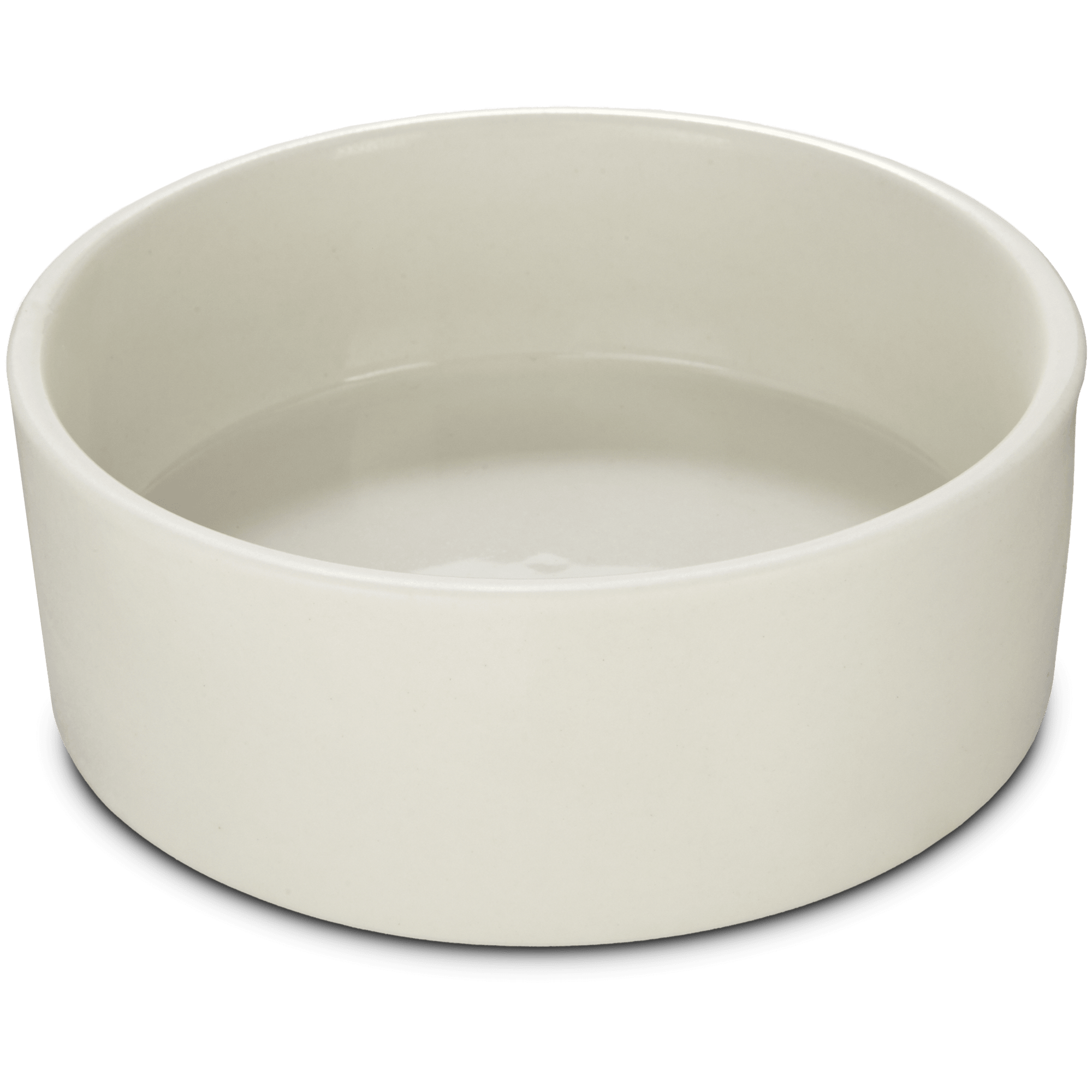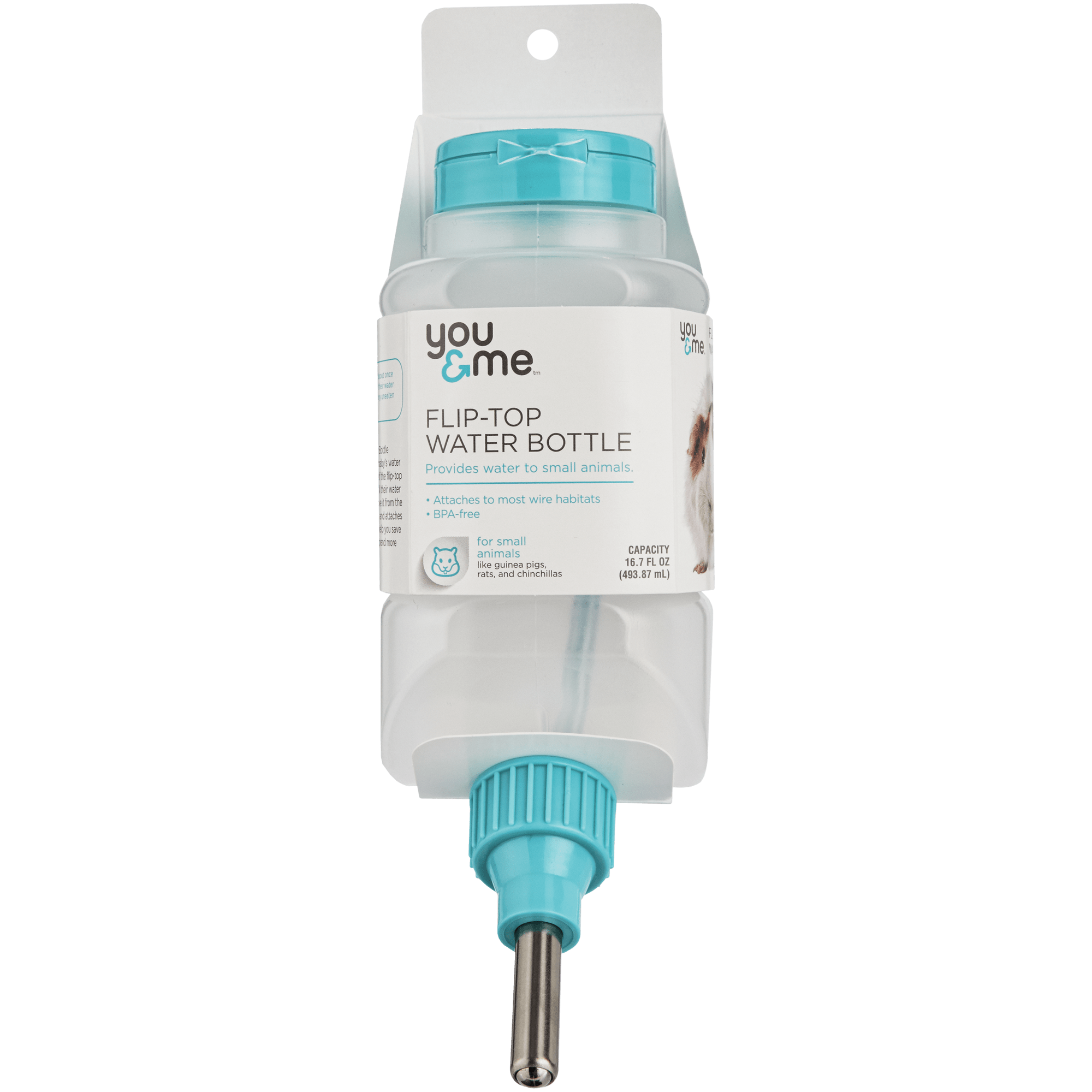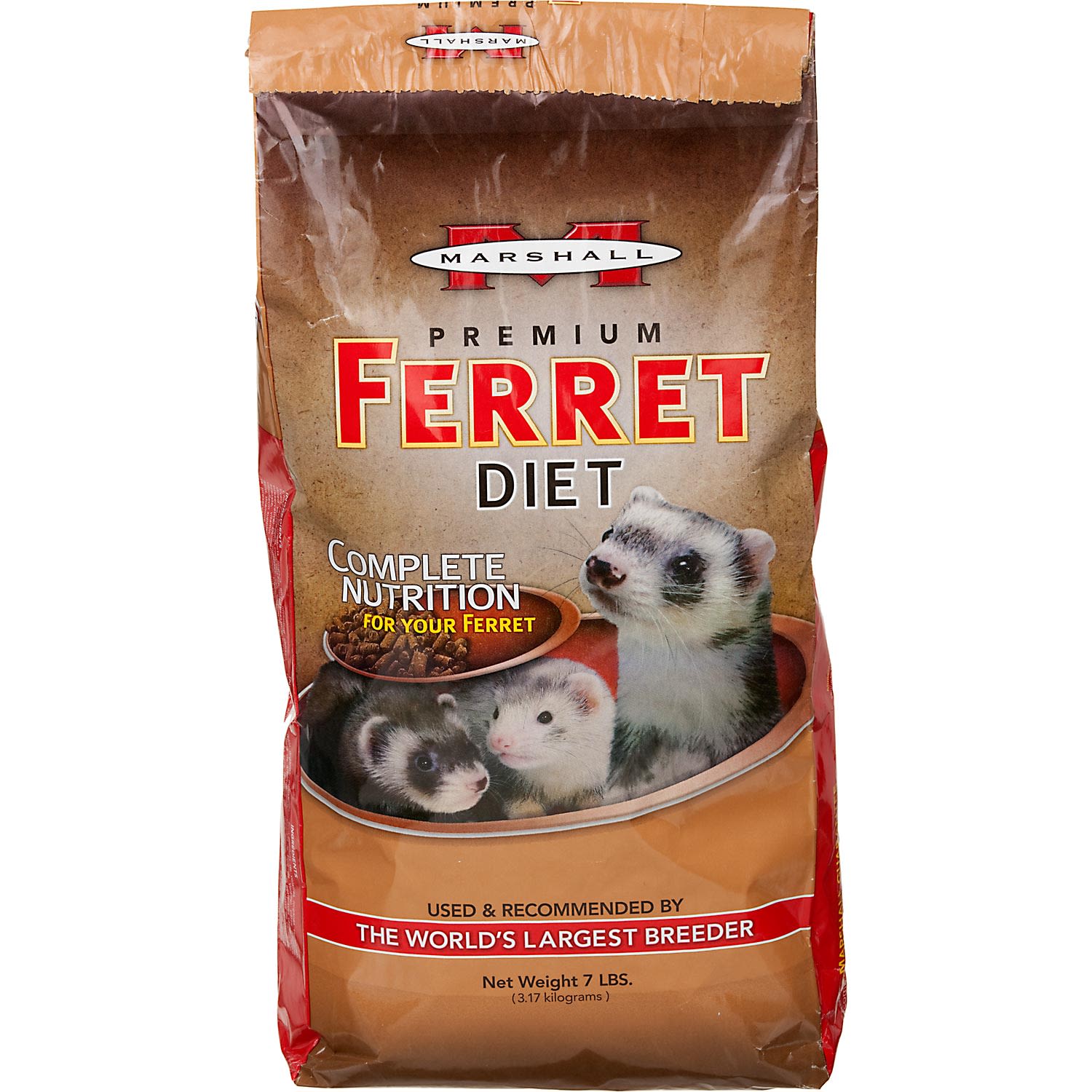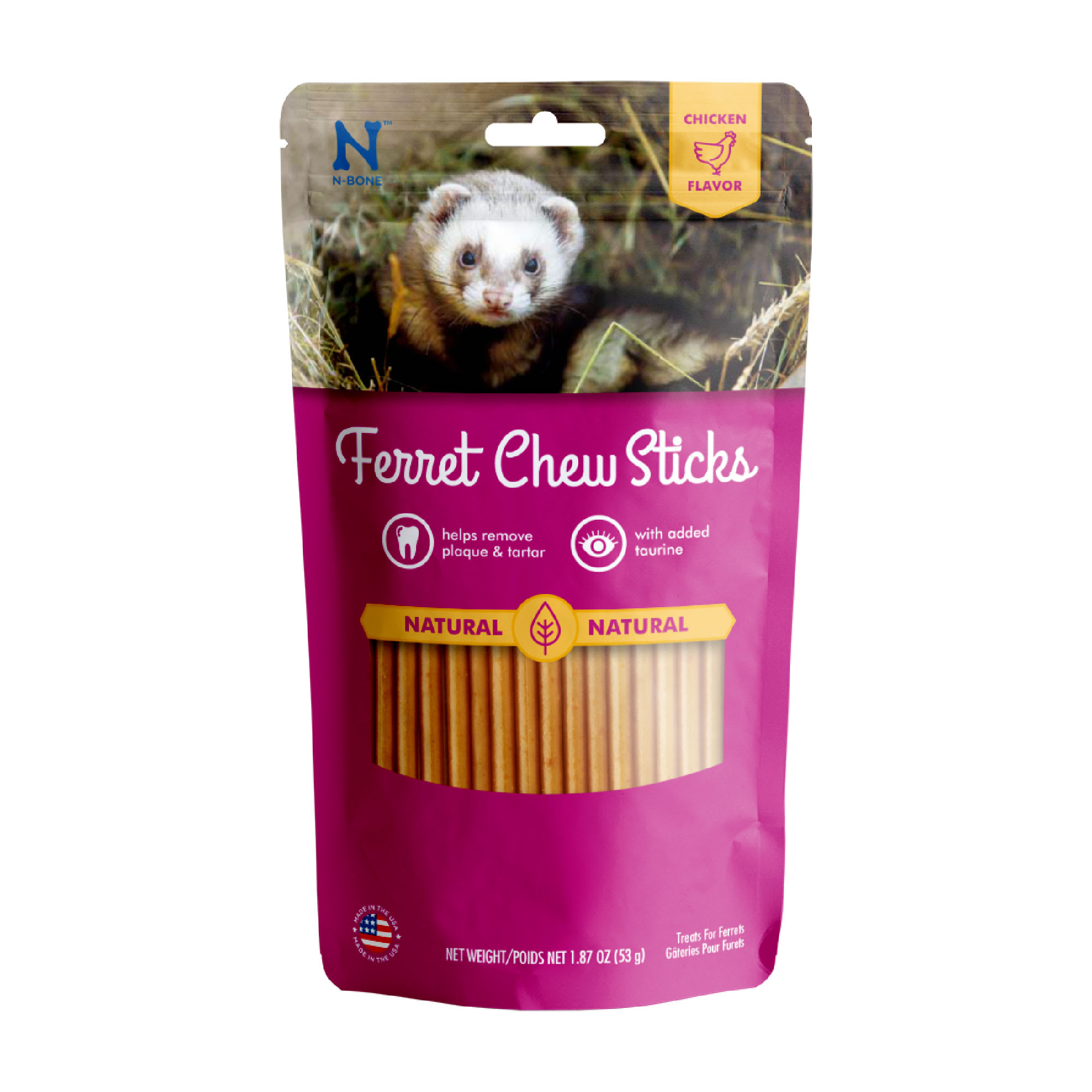https://www.petco.com/shop/PetcoPingUserType?requesttype=ajax&catalogId=10051&storeId=10151&langId=-1
{"initialState":{"data":"","absoluteHref":false,"subdomain":"www","enablePCC":true,"environment":"PRODUCTION","serverApiOrigin":"https://www.petco.com","commitSHA":"ba933124dc242f62b7274b1e6c9d338cd126aac2","auth0BaseUrl":"https://authentication.petcotest.auth0app.com/v2/logout?returnURL=","shopByList":[[{"data-track-value":"Header:NEW & TRENDING","id":"new-&-trending","header":"NEW & TRENDING","url":"/shop/en/petcostore/category/trending-shops","eSpot":{"show":true,"url":"/shop/en/petcostore/category/trending-shops","data-track-value":"Header:NEW & TRENDING:Espot","img":{"src":"https://assets.petco.com/petco/image/upload/f_auto,q_auto/summershop24-newtrending-global-nav-flyout-172x431","alt":"Trending Shop Flyout"}},"categoryLists":[{"id":"new-&-trending-trending-now","header":"TRENDING NOW","url":"/shop/en/petcostore/category/trending-shops","data-track-value":"Header:NEW & TRENDING:TRENDING NOW","links":[{"id":"new-&-trending-trending-now-birthday-shop","url":"/shop/en/petcostore/category/trending-shops/birthday","text":"Birthday Shop","data-track-value":"Header:NEW & TRENDING:TRENDING NOW:Birthday Shop"},{"id":"new-&-trending-trending-now-jerseys-&-sports-gear","url":"/shop/en/petcostore/category/pet-jerseys-and-sports-gear","text":"Jerseys & Sports Gear","data-track-value":"Header:NEW & TRENDING:TRENDING NOW:Jerseys & Sports Gear"},{"id":"new-&-trending-trending-now-new-pet-guides","url":"/shop/en/petcostore/c/new-pet","text":"New Pet Guides","data-track-value":"Header:NEW & TRENDING:TRENDING NOW:New Pet Guides"},{"id":"new-&-trending-trending-now-healthy-habits-hub","url":"/shop/en/petcostore/c/healthy-habits-hub","text":"Healthy Habits Hub","data-track-value":"Header:NEW & TRENDING:TRENDING NOW:Healthy Habits Hub"},{"id":"new-&-trending-trending-now-new-arrivals","url":"/shop/en/petcostore/category/trending-shops/new-at-petco","text":"New Arrivals","data-track-value":"Header:NEW & TRENDING:TRENDING NOW:New Arrivals"},{"id":"new-&-trending-trending-now-summer-shop","url":"/shop/en/petcostore/category/trending-shops","text":"Summer Shop","data-track-value":"Header:NEW & TRENDING:TRENDING NOW:Summer Shop"}]},{"id":"new-&-trending-flea-&-tick-protection","header":"FLEA & TICK PROTECTION","url":"/shop/en/petcostore/c/flea-and-tick-prevention","data-track-value":"Header:NEW & TRENDING:FLEA & TICK PROTECTION","links":[{"id":"new-&-trending-flea-&-tick-protection-dog-flea-&-tick","url":"/shop/en/petcostore/category/dog/dog-and-puppy-flea-and-tick","text":"Dog Flea & Tick","data-track-value":"Header:NEW & TRENDING:FLEA & TICK PROTECTION:Dog Flea & Tick"},{"id":"new-&-trending-flea-&-tick-protection-cat-flea-&-tick","url":"/shop/en/petcostore/category/cat/cat-flea-and-tick","text":"Cat Flea & Tick","data-track-value":"Header:NEW & TRENDING:FLEA & TICK PROTECTION:Cat Flea & Tick"},{"id":"new-&-trending-flea-&-tick-protection-shop-all-flea-&-tick","url":"/shop/en/petcostore/category/pet-pharmacy/pest-protection","text":"Shop All Flea & Tick","data-track-value":"Header:NEW & TRENDING:FLEA & TICK PROTECTION:Shop All Flea & Tick"}]},{"id":"new-&-trending-new-brands","header":"NEW BRANDS","url":"/shop/en/petcostore/category/trending-shops/new-at-petco","data-track-value":"Header:NEW & TRENDING:NEW BRANDS","links":[{"id":"new-&-trending-new-brands-fera-pet-organics","url":"/shop/en/petcostore/brand/fera-pet-organics","text":"Fera Pet Organics","data-track-value":"Header:NEW & TRENDING:NEW BRANDS:Fera Pet Organics"},{"id":"new-&-trending-new-brands-finn","url":"/shop/en/petcostore/brand/finn/dog","text":"Finn","data-track-value":"Header:NEW & TRENDING:NEW BRANDS:Finn"},{"id":"new-&-trending-new-brands-greenies","url":"/shop/en/petcostore/brand/greenies/dog","text":"Greenies","data-track-value":"Header:NEW & TRENDING:NEW BRANDS:Greenies"},{"id":"new-&-trending-new-brands-kitchen-by-reddy","url":"/shop/en/petcostore/brand/reddy/dog/dog-feeding-supplies","text":"Kitchen by Reddy","data-track-value":"Header:NEW & TRENDING:NEW BRANDS:Kitchen by Reddy"},{"id":"new-&-trending-new-brands-ollie","url":"/shop/en/petcostore/brand/ollie/dog","text":"Ollie","data-track-value":"Header:NEW & TRENDING:NEW BRANDS:Ollie"},{"id":"new-&-trending-new-brands-pupford","url":"/shop/en/petcostore/brand/pupford/dog/dog-treats-and-chews","text":"Pupford","data-track-value":"Header:NEW & TRENDING:NEW BRANDS:Pupford"},{"id":"new-&-trending-new-brands-zesty-paws","url":"/shop/en/petcostore/brand/zesty-paws","text":"Zesty Paws","data-track-value":"Header:NEW & TRENDING:NEW BRANDS:Zesty Paws"}]},{"id":"new-&-trending-shop-brands-by-petco","header":"SHOP BRANDS BY PETCO","url":"/shop/en/petcostore/c/petco-brands","data-track-value":"Header:NEW & TRENDING:SHOP BRANDS BY PETCO"},{"id":"new-&-trending-new-brands--low-prices","header":"NEW BRANDS, LOW PRICES","url":"/shop/en/petcostore/category/trending-shops/new-brands-low-prices","data-track-value":"Header:NEW & TRENDING:NEW BRANDS, LOW PRICES"},{"id":"new-&-trending-espot","header":"Espot","data-track-value":"Header:NEW & TRENDING:Espot","links":[{"id":"new-&-trending-espot-trending-shop-flyout","url":"/shop/en/petcostore/category/trending-shops","text":"Trending Shop Flyout","imageSrc":"https://assets.petco.com/petco/image/upload/f_auto,q_auto/summershop24-newtrending-global-nav-flyout-172x431","data-track-value":"Header:NEW & TRENDING:Espot:Trending Shop Flyout"}]}]},{"data-track-value":"Header:SALE","id":"sale","header":"SALE","url":"/shop/en/petcostore/category/top-deals","eSpot":{"show":true,"url":"/shop/en/petcostore/category/top-deals","data-track-value":"Header:SALE:Espot","img":{"src":"https://assets.petco.com/petco/image/upload/f_auto,q_auto/nationalpetday-05-2024-global-nav flyout","alt":"sales"}},"categoryLists":[{"id":"sale-shop-all-deals","header":"SHOP ALL DEALS","url":"/shop/en/petcostore/category/top-deals","data-track-value":"Header:SALE:SHOP ALL DEALS","links":[{"id":"sale-shop-all-deals-dog-deals","url":"/shop/en/petcostore/category/top-deals/dog-deals","text":"Dog Deals","data-track-value":"Header:SALE:SHOP ALL DEALS:Dog Deals"},{"id":"sale-shop-all-deals-cat-deals","url":"/shop/en/petcostore/category/top-deals/cat-deals","text":"Cat Deals","data-track-value":"Header:SALE:SHOP ALL DEALS:Cat Deals"},{"id":"sale-shop-all-deals-fish-deals","url":"/shop/en/petcostore/category/top-deals/fish-deals","text":"Fish Deals","data-track-value":"Header:SALE:SHOP ALL DEALS:Fish Deals"},{"id":"sale-shop-all-deals-small-pet-deals","url":"/shop/en/petcostore/category/top-deals/small-pet-deals","text":"Small Pet Deals","data-track-value":"Header:SALE:SHOP ALL DEALS:Small Pet Deals"},{"id":"sale-shop-all-deals-reptile-deals","url":"/shop/en/petcostore/category/top-deals/reptile-deals","text":"Reptile Deals","data-track-value":"Header:SALE:SHOP ALL DEALS:Reptile Deals"},{"id":"sale-shop-all-deals-bird-deals","url":"/shop/en/petcostore/category/top-deals/bird-deals","text":"Bird Deals","data-track-value":"Header:SALE:SHOP ALL DEALS:Bird Deals"},{"id":"sale-shop-all-deals-pet-parent-deals","url":"/shop/en/petcostore/category/top-deals/pet-parent-deals","text":"Pet Parent Deals","data-track-value":"Header:SALE:SHOP ALL DEALS:Pet Parent Deals"}]},{"id":"sale-shop-all-top-deals","header":"SHOP ALL TOP DEALS","url":"/shop/en/petcostore/category/top-deals","data-track-value":"Header:SALE:SHOP ALL TOP DEALS","links":[{"id":"sale-shop-all-top-deals-up-to-40%-off-cat-&-kitten-essentials","url":"/shop/en/petcostore/category/top-deals/cat-deals","text":"Up to 40% OFF Cat & Kitten Essentials","data-track-value":"Header:SALE:SHOP ALL TOP DEALS:Up to 40% OFF Cat & Kitten Essentials"},{"id":"sale-shop-all-top-deals-up-to-25%-off-dog-&-cat-treats","url":"/shop/en/petcostore/category/top-deals/dog-cat-treat-deals","text":"Up to 25% OFF Dog & Cat Treats","data-track-value":"Header:SALE:SHOP ALL TOP DEALS:Up to 25% OFF Dog & Cat Treats"},{"id":"sale-shop-all-top-deals-20%-off-select-planted-&-shrimp-supplies","url":"/shop/en/petcostore/category/fish/planted-shrimp-tank","text":"20% OFF Select Planted & Shrimp Supplies","data-track-value":"Header:SALE:SHOP ALL TOP DEALS:20% OFF Select Planted & Shrimp Supplies"},{"id":"sale-shop-all-top-deals-up-to-50%-off-reptile-kits","url":"/shop/en/petcostore/category/top-deals/reptile-deals/reptile-kit-deals","text":"Up to 50% OFF Reptile Kits","data-track-value":"Header:SALE:SHOP ALL TOP DEALS:Up to 50% OFF Reptile Kits"},{"id":"sale-shop-all-top-deals-40%-off-first-repeat-delivery-on-select-petco-brands","url":"/shop/en/petcostore/category/repeat-delivery-eligible-products/40-off-first-rd-select-brands","text":"40% OFF First Repeat Delivery on Select Petco Brands","data-track-value":"Header:SALE:SHOP ALL TOP DEALS:40% OFF First Repeat Delivery on Select Petco Brands"}]},{"id":"sale-shop-all-clearance","header":"SHOP ALL CLEARANCE","url":"/shop/en/petcostore/category/top-deals/clearance","data-track-value":"Header:SALE:SHOP ALL CLEARANCE","links":[{"id":"sale-shop-all-clearance-dog-clearance","url":"/shop/en/petcostore/category/top-deals/clearance/dog-clearance","text":"Dog Clearance","data-track-value":"Header:SALE:SHOP ALL CLEARANCE:Dog Clearance"},{"id":"sale-shop-all-clearance-cat-clearance","url":"/shop/en/petcostore/category/top-deals/clearance/cat-clearance","text":"Cat Clearance","data-track-value":"Header:SALE:SHOP ALL CLEARANCE:Cat Clearance"},{"id":"sale-shop-all-clearance-fish-clearance","url":"/shop/en/petcostore/category/top-deals/clearance/fish-small-pet-clearance/top-deals-fish-clearance","text":"Fish Clearance","data-track-value":"Header:SALE:SHOP ALL CLEARANCE:Fish Clearance"},{"id":"sale-shop-all-clearance-small-pet-clearance","url":"/shop/en/petcostore/category/top-deals/clearance/fish-small-pet-clearance/top-deals-small-animal-clearance","text":"Small Pet Clearance","data-track-value":"Header:SALE:SHOP ALL CLEARANCE:Small Pet Clearance"},{"id":"sale-shop-all-clearance-reptile-clearance","url":"/shop/en/petcostore/category/top-deals/clearance/fish-small-pet-clearance/top-deals-reptile-clearance","text":"Reptile Clearance","data-track-value":"Header:SALE:SHOP ALL CLEARANCE:Reptile Clearance"},{"id":"sale-shop-all-clearance-bird-clearance","url":"/shop/en/petcostore/category/top-deals/clearance/clearance-bird-supplies","text":"Bird Clearance","data-track-value":"Header:SALE:SHOP ALL CLEARANCE:Bird Clearance"},{"id":"sale-shop-all-clearance-pet-parent-clearance","url":"/shop/en/petcostore/category/top-deals/clearance/clearance-for-pet-parents","text":"Pet Parent Clearance","data-track-value":"Header:SALE:SHOP ALL CLEARANCE:Pet Parent Clearance"}]},{"id":"sale-shop-delivery-deals","header":"SHOP DELIVERY DEALS","data-track-value":"Header:SALE:SHOP DELIVERY DEALS","links":[{"id":"sale-shop-delivery-deals-free-same-day-delivery--no-order-minimum","url":"/shop/en/petcostore/category/same-day-delivery-products","text":"Free Same Day Delivery, No Order Minimum","data-track-value":"Header:SALE:SHOP DELIVERY DEALS:Free Same Day Delivery, No Order Minimum"},{"id":"sale-shop-delivery-deals-35%-your-first-repeat-delivery-order","url":"/shop/en/petcostore/category/repeat-delivery-eligible-products","text":"35% Your First Repeat Delivery Order","data-track-value":"Header:SALE:SHOP DELIVERY DEALS:35% Your First Repeat Delivery Order"},{"id":"sale-shop-delivery-deals-10%-off-$50+--20%-off-$80+-when-you-buy-online-pickup-in-store","url":"/shop/en/petcostore/category/buy-online-pick-up-in-store-products","text":"10% OFF $50+, 20% OFF $80+ When You Buy Online Pickup In Store","data-track-value":"Header:SALE:SHOP DELIVERY DEALS:10% OFF $50+, 20% OFF $80+ When You Buy Online Pickup In Store"}]},{"id":"sale-weekly-ad","header":"WEEKLY AD","url":"/shop/en/petcostore/s/petco-coupons-promos","data-track-value":"Header:SALE:WEEKLY AD"},{"id":"sale-gift-cards","header":"GIFT CARDS","url":"/shop/en/petcostore/c/gift-card","data-track-value":"Header:SALE:GIFT CARDS"},{"id":"sale-espot","header":"Espot","data-track-value":"Header:SALE:Espot","links":[{"id":"sale-espot-sales","url":"/shop/en/petcostore/category/top-deals","text":"sales","imageSrc":"https://assets.petco.com/petco/image/upload/f_auto,q_auto/nationalpetday-05-2024-global-nav flyout","data-track-value":"Header:SALE:Espot:sales"}]}]},{"data-track-value":"Header:SERVICES & REWARDS","id":"services-&-rewards","header":"SERVICES & REWARDS","url":"/shop/en/petcostore/c/pet-services","eSpot":{"show":true,"url":"/shop/en/petcostore/s/dog-grooming","data-track-value":"Header:SERVICES & REWARDS:Espot","img":{"src":"https://assets.petco.com/petco/image/upload/f_auto,q_auto:best,dpr_1.5/summer24grooming-global-nav-flyout-172x431","alt":"Services Flyout"}},"categoryLists":[{"id":"services-&-rewards-services","header":"SERVICES","url":"/shop/en/petcostore/c/pet-services","data-track-value":"Header:SERVICES & REWARDS:SERVICES","links":[{"id":"services-&-rewards-services-dog-grooming","url":"/shop/en/petcostore/s/dog-grooming","text":"Dog Grooming","data-track-value":"Header:SERVICES & REWARDS:SERVICES:Dog Grooming"},{"id":"services-&-rewards-services-veterinary-services","url":"/shop/en/petcostore/s/veterinary-services","text":"Veterinary Services","data-track-value":"Header:SERVICES & REWARDS:SERVICES:Veterinary Services"},{"id":"services-&-rewards-services-dog-training","url":"/shop/en/petcostore/s/petco-dog-training","text":"Dog Training","data-track-value":"Header:SERVICES & REWARDS:SERVICES:Dog Training"},{"id":"services-&-rewards-services-pet-adoptions","url":"https://www.petcolove.org/put-your-love-into-action/learn-about-adoption/","text":"Pet Adoptions","data-track-value":"Header:SERVICES & REWARDS:SERVICES:Pet Adoptions"},{"id":"services-&-rewards-services-pet-sitting--boarding--walking","url":"https://get.rover.com/petco?utm_campaign=749541640&utm_medium=referral&utm_source=petco&utm_content=services","text":"Pet Sitting, Boarding, Walking","data-track-value":"Header:SERVICES & REWARDS:SERVICES:Pet Sitting, Boarding, Walking"},{"id":"services-&-rewards-services-see-all-services","url":"/shop/en/petcostore/c/pet-services","text":"See All Services","data-track-value":"Header:SERVICES & REWARDS:SERVICES:See All Services"}]},{"id":"services-&-rewards-delivery-methods","header":"DELIVERY METHODS","data-track-value":"Header:SERVICES & REWARDS:DELIVERY METHODS","links":[{"id":"services-&-rewards-delivery-methods-repeat-delivery","url":"/shop/en/petcostore/category/repeat-delivery-eligible-products","text":"Repeat Delivery","data-track-value":"Header:SERVICES & REWARDS:DELIVERY METHODS:Repeat Delivery"},{"id":"services-&-rewards-delivery-methods-curbside-pickup","url":"/shop/en/petcostore/category/buy-online-pick-up-in-store-products","text":"Curbside Pickup","data-track-value":"Header:SERVICES & REWARDS:DELIVERY METHODS:Curbside Pickup"},{"id":"services-&-rewards-delivery-methods-same-day-delivery","url":"/shop/en/petcostore/category/same-day-delivery-products","text":"Same Day Delivery","data-track-value":"Header:SERVICES & REWARDS:DELIVERY METHODS:Same Day Delivery"}]},{"id":"services-&-rewards-rewards-&-memberships","header":"REWARDS & MEMBERSHIPS","url":"/shop/en/petcostore/c/vitalcare","data-track-value":"Header:SERVICES & REWARDS:REWARDS & MEMBERSHIPS","links":[{"id":"services-&-rewards-rewards-&-memberships-vital-care","url":"/shop/en/petcostore/c/vitalcare","text":"Vital Care ","data-track-value":"Header:SERVICES & REWARDS:REWARDS & MEMBERSHIPS:Vital Care "},{"id":"services-&-rewards-rewards-&-memberships-petco-pay","url":"/shop/en/petcostore/c/credit-card","text":"Petco Pay","data-track-value":"Header:SERVICES & REWARDS:REWARDS & MEMBERSHIPS:Petco Pay"},{"id":"services-&-rewards-rewards-&-memberships-pet-insurance","url":"/shop/en/petcostore/insurance","text":"Pet Insurance","data-track-value":"Header:SERVICES & REWARDS:REWARDS & MEMBERSHIPS:Pet Insurance"}]},{"id":"services-&-rewards-espot","header":"Espot","data-track-value":"Header:SERVICES & REWARDS:Espot","links":[{"id":"services-&-rewards-espot-services-flyout","url":"/shop/en/petcostore/s/dog-grooming","text":"Services Flyout","imageSrc":"https://assets.petco.com/petco/image/upload/f_auto,q_auto:best,dpr_1.5/summer24grooming-global-nav-flyout-172x431","data-track-value":"Header:SERVICES & REWARDS:Espot:Services Flyout"}]}]},{"data-track-value":"Header:PHARMACY","id":"pharmacy","header":"PHARMACY","url":"/shop/en/petcostore/category/pet-pharmacy","brands":[{"id":"pharmacy-brands-heartgard","url":"/shop/en/petcostore/brand/heartgard-plus/pet-pharmacy/dog-rx","text":"heartgard","imageSrc":"pharmacy-100918-logo-heartgard-150w-150h-d","data-track-value":"Header:PHARMACY:Brands:heartgard"},{"id":"pharmacy-brands-nexgard","url":"/shop/en/petcostore/brand/nexgard/pet-pharmacy/dog-rx","text":"nexgard","imageSrc":"pharmacy-100918-logo-nexgard-150w-150h-d","data-track-value":"Header:PHARMACY:Brands:nexgard"},{"id":"pharmacy-brands-bravecto","url":"/shop/en/petcostore/brand/bravecto","text":"bravecto","imageSrc":"pharmacy-100918-logo-bravecto-150w-150h-d.jpg","data-track-value":"Header:PHARMACY:Brands:bravecto"},{"id":"pharmacy-brands-apoquel","url":"/shop/en/petcostore/brand/apoquel","text":"apoquel","imageSrc":"pharmacy-featured-brands-apoquel-tile-244w-244h","data-track-value":"Header:PHARMACY:Brands:apoquel"},{"id":"pharmacy-brands-simparica-trio","url":"/shop/en/petcostore/brand/simparica-trio","text":"simparica trio","imageSrc":"simparicatrio-150","data-track-value":"Header:PHARMACY:Brands:simparica trio"},{"id":"pharmacy-brands-galliprant","url":"/shop/en/petcostore/brand/galliprant","text":"galliprant","imageSrc":"galliprant","data-track-value":"Header:PHARMACY:Brands:galliprant"},{"id":"pharmacy-brands-trifexis","url":"/shop/en/petcostore/brand/trifexis","text":"trifexis","imageSrc":"pharmacy-021919-logo-trifexis-150w-150h-d","data-track-value":"Header:PHARMACY:Brands:trifexis"},{"id":"pharmacy-brands-interceptor","url":"/shop/en/petcostore/brand/interceptor-plus","text":"interceptor","imageSrc":"Interceptor%20Plus_4C_logo","data-track-value":"Header:PHARMACY:Brands:interceptor"}],"eSpot":{"show":true,"url":"/shop/en/petcostore/insurance","data-track-value":"Header:PHARMACY:Espot","img":{"src":"https://assets.petco.com/petco/image/upload/f_auto,q_auto:best/nationwide-insurance0124-global-nav-flyout_172x431","alt":"Pharmacy Flyout"}},"categoryLists":[{"id":"pharmacy-manage-my-pet's-prescriptions","header":"MANAGE MY PET'S PRESCRIPTIONS","url":"/shop/PetcoMyPrescriptionView?catalogId=10051&authToken=400895125%252CO7P4LJVMJyzVEhIcPpEcfndtHY%252FKL%252Fm0WlinVia6Z1g%253D&storeId=10151&langId=-1&myAccountActivePage=myPrescription","data-track-value":"Header:PHARMACY:MANAGE MY PET'S PRESCRIPTIONS"},{"id":"pharmacy-shop-all-flea-&-tick","header":"SHOP ALL FLEA & TICK","url":"/shop/en/petcostore/category/pet-pharmacy/pest-protection","data-track-value":"Header:PHARMACY:SHOP ALL FLEA & TICK"},{"id":"pharmacy-dog-medication","header":"DOG MEDICATION","url":"/shop/en/petcostore/category/pet-pharmacy/dog-rx","data-track-value":"Header:PHARMACY:DOG MEDICATION","links":[{"id":"pharmacy-dog-medication-heartworm","url":"/shop/en/petcostore/category/pet-pharmacy/dog-rx/rx-dog-heartworm","text":"Heartworm","data-track-value":"Header:PHARMACY:DOG MEDICATION:Heartworm"},{"id":"pharmacy-dog-medication-flea-&-tick","url":"/shop/en/petcostore/category/pet-pharmacy/dog-rx/flea-and-tick","text":"Flea & Tick","data-track-value":"Header:PHARMACY:DOG MEDICATION:Flea & Tick"},{"id":"pharmacy-dog-medication-pain-relief-&-arthritis","url":"/shop/en/petcostore/category/pet-pharmacy/dog-rx/rx-dog-pain-relief-arthritis","text":"Pain Relief & Arthritis","data-track-value":"Header:PHARMACY:DOG MEDICATION:Pain Relief & Arthritis"},{"id":"pharmacy-dog-medication-allergy-relief","url":"/shop/en/petcostore/category/pet-pharmacy/dog-rx/rx-dog-allergy-relief","text":"Allergy Relief","data-track-value":"Header:PHARMACY:DOG MEDICATION:Allergy Relief"},{"id":"pharmacy-dog-medication-ear-&-eye-care","url":"/shop/en/petcostore/category/pet-pharmacy/dog-rx/rx-dog-ear-eye-care","text":"Ear & Eye Care","data-track-value":"Header:PHARMACY:DOG MEDICATION:Ear & Eye Care"},{"id":"pharmacy-dog-medication-behavior-&-anxiety","url":"/shop/en/petcostore/category/pet-pharmacy/dog-rx/rx-dog-anxiety","text":"Behavior & Anxiety","data-track-value":"Header:PHARMACY:DOG MEDICATION:Behavior & Anxiety"},{"id":"pharmacy-dog-medication-heart-&-blood-pressure","url":"/shop/en/petcostore/category/pet-pharmacy/dog-rx/rx-dog-heart-blood-pressure","text":"Heart & Blood Pressure","data-track-value":"Header:PHARMACY:DOG MEDICATION:Heart & Blood Pressure"},{"id":"pharmacy-dog-medication-antibiotics-&-antifungal","url":"/shop/en/petcostore/category/pet-pharmacy/dog-rx/rx-dog-antibiotics","text":"Antibiotics & Antifungal","data-track-value":"Header:PHARMACY:DOG MEDICATION:Antibiotics & Antifungal"},{"id":"pharmacy-dog-medication-dog-veterinary-diets","url":"/shop/en/petcostore/category/dog/dog-food/prescription-dog-food-and-treats","text":"Dog Veterinary Diets","data-track-value":"Header:PHARMACY:DOG MEDICATION:Dog Veterinary Diets"}]},{"id":"pharmacy-cat-medication","header":"CAT MEDICATION","url":"/shop/en/petcostore/category/pet-pharmacy/cat-rx","data-track-value":"Header:PHARMACY:CAT MEDICATION","links":[{"id":"pharmacy-cat-medication-flea-&-tick","url":"/shop/en/petcostore/category/pet-pharmacy/cat-rx/rx-cat-flea-medicine","text":"Flea & Tick","data-track-value":"Header:PHARMACY:CAT MEDICATION:Flea & Tick"},{"id":"pharmacy-cat-medication-pain-relief-&-arthritis","url":"/shop/en/petcostore/category/pet-pharmacy/cat-rx/rx-cat-pain-relief-arthritis","text":"Pain Relief & Arthritis","data-track-value":"Header:PHARMACY:CAT MEDICATION:Pain Relief & Arthritis"},{"id":"pharmacy-cat-medication-allergy-relief","url":"/shop/en/petcostore/category/pet-pharmacy/cat-rx/rx-cat-allergy-relief","text":"Allergy Relief","data-track-value":"Header:PHARMACY:CAT MEDICATION:Allergy Relief"},{"id":"pharmacy-cat-medication-ear-&-eye-care","url":"/shop/en/petcostore/category/pet-pharmacy/cat-rx/rx-cat-ear-eye-care","text":"Ear & Eye Care","data-track-value":"Header:PHARMACY:CAT MEDICATION:Ear & Eye Care"},{"id":"pharmacy-cat-medication-urinary-tract-&-kidney","url":"/shop/en/petcostore/category/pet-pharmacy/cat-rx/rx-cat-urinary","text":"Urinary Tract & Kidney","data-track-value":"Header:PHARMACY:CAT MEDICATION:Urinary Tract & Kidney"},{"id":"pharmacy-cat-medication-antibiotics-&-antifungal","url":"/shop/en/petcostore/category/pet-pharmacy/cat-rx/rx-cat-antibiotics","text":"Antibiotics & Antifungal","data-track-value":"Header:PHARMACY:CAT MEDICATION:Antibiotics & Antifungal"},{"id":"pharmacy-cat-medication-heartworm","url":"/shop/en/petcostore/category/pet-pharmacy/cat-rx/rx-cat-heartworm","text":"Heartworm","data-track-value":"Header:PHARMACY:CAT MEDICATION:Heartworm"},{"id":"pharmacy-cat-medication-cat-veterinary-diets","url":"/shop/en/petcostore/category/cat/cat-food/prescription-cat-food-and-treats","text":"Cat Veterinary Diets","data-track-value":"Header:PHARMACY:CAT MEDICATION:Cat Veterinary Diets"}]},{"id":"pharmacy-horse-medication","header":"HORSE MEDICATION","url":"/shop/en/petcostore/category/pet-pharmacy/horse-rx","data-track-value":"Header:PHARMACY:HORSE MEDICATION","links":[{"id":"pharmacy-horse-medication-pain-relief-&-arthritis","url":"/shop/en/petcostore/category/pet-pharmacy/horse-rx/rx-horse-pain-relief","text":"Pain Relief & Arthritis","data-track-value":"Header:PHARMACY:HORSE MEDICATION:Pain Relief & Arthritis"},{"id":"pharmacy-horse-medication-thyroid-&-hormone","url":"/shop/en/petcostore/category/pet-pharmacy/horse-rx/rx-horse-thyroid-hormone","text":"Thyroid & Hormone","data-track-value":"Header:PHARMACY:HORSE MEDICATION:Thyroid & Hormone"},{"id":"pharmacy-horse-medication-antibiotics-&-antifungal","url":"/shop/en/petcostore/category/pet-pharmacy/horse-rx/rx-horse-antibiotics","text":"Antibiotics & Antifungal","data-track-value":"Header:PHARMACY:HORSE MEDICATION:Antibiotics & Antifungal"},{"id":"pharmacy-horse-medication-behavior-&-anxiety","url":"/shop/en/petcostore/category/pet-pharmacy/horse-rx/rx-horse-anxiety","text":"Behavior & Anxiety","data-track-value":"Header:PHARMACY:HORSE MEDICATION:Behavior & Anxiety"},{"id":"pharmacy-horse-medication-gastrointestinal-&-digestive","url":"/shop/en/petcostore/category/pet-pharmacy/horse-rx/rx-horse-digestive","text":"Gastrointestinal & Digestive","data-track-value":"Header:PHARMACY:HORSE MEDICATION:Gastrointestinal & Digestive"}]},{"id":"pharmacy-pet-insurance","header":"PET INSURANCE","url":"/shop/en/petcostore/insurance","data-track-value":"Header:PHARMACY:PET INSURANCE"},{"id":"pharmacy-brands","header":"Brands","data-track-value":"Header:PHARMACY:Brands","links":[{"id":"pharmacy-brands-heartgard","url":"/shop/en/petcostore/brand/heartgard-plus/pet-pharmacy/dog-rx","text":"heartgard","imageSrc":"pharmacy-100918-logo-heartgard-150w-150h-d","data-track-value":"Header:PHARMACY:Brands:heartgard"},{"id":"pharmacy-brands-nexgard","url":"/shop/en/petcostore/brand/nexgard/pet-pharmacy/dog-rx","text":"nexgard","imageSrc":"pharmacy-100918-logo-nexgard-150w-150h-d","data-track-value":"Header:PHARMACY:Brands:nexgard"},{"id":"pharmacy-brands-bravecto","url":"/shop/en/petcostore/brand/bravecto","text":"bravecto","imageSrc":"pharmacy-100918-logo-bravecto-150w-150h-d.jpg","data-track-value":"Header:PHARMACY:Brands:bravecto"},{"id":"pharmacy-brands-apoquel","url":"/shop/en/petcostore/brand/apoquel","text":"apoquel","imageSrc":"pharmacy-featured-brands-apoquel-tile-244w-244h","data-track-value":"Header:PHARMACY:Brands:apoquel"},{"id":"pharmacy-brands-simparica-trio","url":"/shop/en/petcostore/brand/simparica-trio","text":"simparica trio","imageSrc":"simparicatrio-150","data-track-value":"Header:PHARMACY:Brands:simparica trio"},{"id":"pharmacy-brands-galliprant","url":"/shop/en/petcostore/brand/galliprant","text":"galliprant","imageSrc":"galliprant","data-track-value":"Header:PHARMACY:Brands:galliprant"},{"id":"pharmacy-brands-trifexis","url":"/shop/en/petcostore/brand/trifexis","text":"trifexis","imageSrc":"pharmacy-021919-logo-trifexis-150w-150h-d","data-track-value":"Header:PHARMACY:Brands:trifexis"},{"id":"pharmacy-brands-interceptor","url":"/shop/en/petcostore/brand/interceptor-plus","text":"interceptor","imageSrc":"Interceptor%20Plus_4C_logo","data-track-value":"Header:PHARMACY:Brands:interceptor"}]},{"id":"pharmacy-espot","header":"Espot","data-track-value":"Header:PHARMACY:Espot","links":[{"id":"pharmacy-espot-pharmacy-flyout","url":"/shop/en/petcostore/insurance","text":"Pharmacy Flyout","imageSrc":"https://assets.petco.com/petco/image/upload/f_auto,q_auto:best/nationwide-insurance0124-global-nav-flyout_172x431","data-track-value":"Header:PHARMACY:Espot:Pharmacy Flyout"}]}]},{"data-track-value":"Header:DOG","id":"dog","header":"DOG","url":"/shop/en/petcostore/category/dog","brands":[{"id":"dog-brands-wholehearted","url":"/shop/en/petcostore/brand/wholehearted/dog","text":"wholehearted","imageSrc":"wholehearted-0816-logo-thumb-140x140-d","data-track-value":"Header:DOG:Brands:wholehearted"},{"id":"dog-brands-blue-buffalo","url":"/shop/en/petcostore/brand/blue-buffalo/dog","text":"blue buffalo ","imageSrc":"blue-buffalo-logo-140w-140h","data-track-value":"Header:DOG:Brands:blue buffalo "},{"id":"dog-brands-honest-kitchen","url":"/shop/en/petcostore/brand/the-honest-kitchen/dog","text":"honest-kitchen","imageSrc":"honestkitchen_brandcarousel","data-track-value":"Header:DOG:Brands:honest-kitchen"},{"id":"dog-brands-merrick","url":"/shop/en/petcostore/brand/merrick/dog","text":"merrick","imageSrc":"merrick-logo-upd-24_88x88","data-track-value":"Header:DOG:Brands:merrick"},{"id":"dog-brands-reddy","url":"/shop/en/petcostore/brand/reddy/dog","text":"reddy","imageSrc":"logo-reddy-130w-171h","data-track-value":"Header:DOG:Brands:reddy"},{"id":"dog-brands-science-diet","url":"/shop/en/petcostore/brand/science-diet/dog/dog-food","text":"science-diet","imageSrc":"Hills_Flyout_BrandLogo_88x88","data-track-value":"Header:DOG:Brands:science-diet"},{"id":"dog-brands-seresto","url":"/shop/en/petcostore/brand/seresto/dog","text":"seresto","imageSrc":"logo-seresto","data-track-value":"Header:DOG:Brands:seresto"},{"id":"dog-brands-acana","url":"/shop/en/petcostore/brand/acana/dog","text":"ACANA","imageSrc":"ACANA_CreamBackground_FlyoutLogo_88x88","data-track-value":"Header:DOG:Brands:ACANA"},{"id":"dog-brands-stella-&-chewys","url":"/shop/en/petcostore/brand/stella-chewys/dog","text":"Stella & Chewys","imageSrc":"stellachewys_logo_98x98","data-track-value":"Header:DOG:Brands:Stella & Chewys"},{"id":"dog-brands-nulo","url":"/shop/en/petcostore/brand/nulo/dog/dog-food","text":"Nulo","imageSrc":"Nulo-GlobalFlyout_Logo_88x88","data-track-value":"Header:DOG:Brands:Nulo"},{"id":"dog-brands-just-food-for-dogs","url":"/shop/en/petcostore/brand/justfoodfordogs","text":"Just Food For Dogs","imageSrc":"JFFD_L1DogFtBrands_132x152","data-track-value":"Header:DOG:Brands:Just Food For Dogs"},{"id":"dog-brands-pedigree","url":"/shop/en/petcostore/brand/pedigree/dog","text":"Pedigree","imageSrc":"Pedigree-Rosette-logo-88x88.png","data-track-value":"Header:DOG:Brands:Pedigree"},{"id":"dog-brands-purina-pro-plan","url":"/shop/en/petcostore/brand/purina-pro-plan/dog","text":"Purina Pro Plan","imageSrc":"PurinaPP_CategoryFlyoutLogo_88x88","data-track-value":"Header:DOG:Brands:Purina Pro Plan"},{"id":"dog-brands-greenies","url":"/shop/en/petcostore/brand/greenies/dog","text":"Greenies","imageSrc":"Greenies_Flyout-Logo-2024_88x88","data-track-value":"Header:DOG:Brands:Greenies"}],"eSpot":{"show":true,"url":"/shop/en/petcostore/category/top-deals/dog-cat-treat-deals","data-track-value":"Header:DOG:Espot","img":{"src":"https://assets.petco.com/petco/image/upload/f_auto,q_auto:best/dogcattreats-25off-052024-global-nav-flyout-172x431.gif","alt":"Dog Flyout"}},"categoryLists":[{"id":"dog-food","header":"FOOD","url":"/shop/en/petcostore/category/dog/dog-food","data-track-value":"Header:DOG:FOOD","links":[{"id":"dog-food-dry-food","url":"/shop/en/petcostore/category/dog/dog-food/dry-dog-food","text":"Dry Food","data-track-value":"Header:DOG:FOOD:Dry Food"},{"id":"dog-food-wet-food","url":"/shop/en/petcostore/category/dog/dog-food/wet-dog-food","text":"Wet Food","data-track-value":"Header:DOG:FOOD:Wet Food"},{"id":"dog-food-puppy-food","url":"/shop/en/petcostore/category/dog/dog-food/puppy-food","text":"Puppy Food","data-track-value":"Header:DOG:FOOD:Puppy Food"},{"id":"dog-food-fresh-&-frozen-food","url":"/shop/en/petcostore/category/dog/dog-food/fresh-dog-food","text":"Fresh & Frozen Food","data-track-value":"Header:DOG:FOOD:Fresh & Frozen Food"},{"id":"dog-food-minimally-processed-food","url":"/shop/en/petcostore/category/dog/dog-food/minimally-processed-dog-food","text":"Minimally Processed Food","data-track-value":"Header:DOG:FOOD:Minimally Processed Food"},{"id":"dog-food-veterinary-diet","url":"/shop/en/petcostore/category/dog/dog-food/prescription-dog-food-and-treats","text":"Veterinary Diet","data-track-value":"Header:DOG:FOOD:Veterinary Diet"},{"id":"dog-food-food-toppers","url":"/shop/en/petcostore/category/dog/dog-food/dog-food-broth-and-toppers","text":"Food Toppers","data-track-value":"Header:DOG:FOOD:Food Toppers"}]},{"id":"dog-treats","header":"TREATS","url":"/shop/en/petcostore/category/dog/dog-treats-and-chews","data-track-value":"Header:DOG:TREATS","links":[{"id":"dog-treats-biscuits-&-crunchy-treats","url":"/shop/en/petcostore/category/dog/dog-treats-and-chews/dog-biscuits-cookies-and-snacks","text":"Biscuits & Crunchy Treats","data-track-value":"Header:DOG:TREATS:Biscuits & Crunchy Treats"},{"id":"dog-treats-soft-&-chewy-treats","url":"/shop/en/petcostore/category/dog/dog-treats-and-chews/soft-and-chewy-dog-treats","text":"Soft & Chewy Treats","data-track-value":"Header:DOG:TREATS:Soft & Chewy Treats"},{"id":"dog-treats-dental-treats","url":"/shop/en/petcostore/category/dog/dog-treats-and-chews/dog-dental-treats-and-chews","text":"Dental Treats","data-track-value":"Header:DOG:TREATS:Dental Treats"},{"id":"dog-treats-jerky-treats","url":"/shop/en/petcostore/category/dog/dog-treats-and-chews/jerky-dog-treats","text":"Jerky Treats","data-track-value":"Header:DOG:TREATS:Jerky Treats"},{"id":"dog-treats-training-treats","url":"/shop/en/petcostore/category/dog/dog-treats-and-chews/dog-training-treats","text":"Training Treats","data-track-value":"Header:DOG:TREATS:Training Treats"},{"id":"dog-treats-bones-&-chews","url":"/shop/en/petcostore/category/dog/dog-treats-and-chews/dog-natural-chews-bones","text":"Bones & Chews","data-track-value":"Header:DOG:TREATS:Bones & Chews"},{"id":"dog-treats-ice-cream-treats","url":"/shop/en/petcostore/category/dog/dog-treats-and-chews/dog-ice-cream-treats","text":"Ice Cream Treats","data-track-value":"Header:DOG:TREATS:Ice Cream Treats"}]},{"id":"dog-supplies","header":"SUPPLIES","url":"/shop/en/petcostore/category/dog","data-track-value":"Header:DOG:SUPPLIES","links":[{"id":"dog-supplies-clothes-&-accessories","url":"/shop/en/petcostore/category/dog/dog-apparel","text":"Clothes & Accessories","data-track-value":"Header:DOG:SUPPLIES:Clothes & Accessories"},{"id":"dog-supplies-beds","url":"/shop/en/petcostore/category/dog/dog-beds-and-bedding","text":"Beds","data-track-value":"Header:DOG:SUPPLIES:Beds"},{"id":"dog-supplies-bowls-&-feeders","url":"/shop/en/petcostore/category/dog/dog-feeding-supplies","text":"Bowls & Feeders","data-track-value":"Header:DOG:SUPPLIES:Bowls & Feeders"},{"id":"dog-supplies-collars--leashes--and-harnesses","url":"/shop/en/petcostore/category/dog/dog-collars-leashes-and-harnesses","text":"Collars, Leashes, and Harnesses","data-track-value":"Header:DOG:SUPPLIES:Collars, Leashes, and Harnesses"},{"id":"dog-supplies-crates--gates--&-pens","url":"/shop/en/petcostore/category/dog/dog-crates-kennels-gates-doors-pens-and-housing-accessories","text":"Crates, Gates, & Pens","data-track-value":"Header:DOG:SUPPLIES:Crates, Gates, & Pens"},{"id":"dog-supplies-electronics-&-technology","url":"/shop/en/petcostore/category/pet-technology","text":"Electronics & Technology","data-track-value":"Header:DOG:SUPPLIES:Electronics & Technology"},{"id":"dog-supplies-grooming","url":"/shop/en/petcostore/category/dog/dog-grooming-and-bathing","text":"Grooming","data-track-value":"Header:DOG:SUPPLIES:Grooming"},{"id":"dog-supplies-poop-bags-&-cleaning-supplies","url":"/shop/en/petcostore/category/dog/dog-poop-bags-and-clean-up","text":"Poop Bags & Cleaning Supplies","data-track-value":"Header:DOG:SUPPLIES:Poop Bags & Cleaning Supplies"},{"id":"dog-supplies-toys","url":"/shop/en/petcostore/category/dog/dog-toys","text":"Toys","data-track-value":"Header:DOG:SUPPLIES:Toys"},{"id":"dog-supplies-training-&-behavior","url":"/shop/en/petcostore/category/dog/dog-training","text":"Training & Behavior","data-track-value":"Header:DOG:SUPPLIES:Training & Behavior"},{"id":"dog-supplies-travel-&-outdoor","url":"/shop/en/petcostore/category/dog/travel-outdoor-supplies","text":"Travel & Outdoor","data-track-value":"Header:DOG:SUPPLIES:Travel & Outdoor"}]},{"id":"dog-health-&-wellness","header":"HEALTH & WELLNESS","url":"/shop/en/petcostore/category/dog/dog-health-and-wellness","data-track-value":"Header:DOG:HEALTH & WELLNESS","links":[{"id":"dog-health-&-wellness-pharmacy","url":"/shop/en/petcostore/category/pet-pharmacy/dog-rx","text":"Pharmacy","data-track-value":"Header:DOG:HEALTH & WELLNESS:Pharmacy"},{"id":"dog-health-&-wellness-flea-&-tick","url":"/shop/en/petcostore/category/dog/dog-and-puppy-flea-and-tick","text":"Flea & Tick","data-track-value":"Header:DOG:HEALTH & WELLNESS:Flea & Tick"},{"id":"dog-health-&-wellness-vitamins-&-supplements","url":"/shop/en/petcostore/category/dog/dog-health-and-wellness/dog-vitamins","text":"Vitamins & Supplements","data-track-value":"Header:DOG:HEALTH & WELLNESS:Vitamins & Supplements"},{"id":"dog-health-&-wellness-calming-aids","url":"/shop/en/petcostore/category/dog/dog-health-and-wellness/dog-calming-aids","text":"Calming Aids","data-track-value":"Header:DOG:HEALTH & WELLNESS:Calming Aids"},{"id":"dog-health-&-wellness-dental-care","url":"/shop/en/petcostore/category/dog/dog-health-and-wellness/dental-care","text":"Dental Care","data-track-value":"Header:DOG:HEALTH & WELLNESS:Dental Care"},{"id":"dog-health-&-wellness-first-aid-&-recovery","url":"/shop/en/petcostore/category/dog/dog-health-and-wellness/dog-first-aid","text":"First Aid & Recovery","data-track-value":"Header:DOG:HEALTH & WELLNESS:First Aid & Recovery"},{"id":"dog-health-&-wellness-dna-kits","url":"/shop/en/petcostore/category/dog/dog-health-and-wellness/dog-dna-tests","text":"DNA Kits","data-track-value":"Header:DOG:HEALTH & WELLNESS:DNA Kits"},{"id":"dog-health-&-wellness-healthy-habits-hub","url":"/shop/en/petcostore/c/healthy-habits-hub","text":"Healthy Habits Hub","data-track-value":"Header:DOG:HEALTH & WELLNESS:Healthy Habits Hub"}]},{"id":"dog-dog-services","header":"DOG SERVICES","url":"/shop/en/petcostore/c/pet-services","data-track-value":"Header:DOG:DOG SERVICES","links":[{"id":"dog-dog-services-dog-grooming","url":"/shop/en/petcostore/s/dog-grooming","text":"Dog Grooming","data-track-value":"Header:DOG:DOG SERVICES:Dog Grooming"},{"id":"dog-dog-services-dog-training","url":"/shop/en/petcostore/s/petco-dog-training","text":"Dog Training","data-track-value":"Header:DOG:DOG SERVICES:Dog Training"},{"id":"dog-dog-services-veterinary-services","url":"/shop/en/petcostore/s/veterinary-services","text":"Veterinary Services","data-track-value":"Header:DOG:DOG SERVICES:Veterinary Services"},{"id":"dog-dog-services-pet-insurance","url":"/shop/en/petcostore/insurance","text":"Pet Insurance","data-track-value":"Header:DOG:DOG SERVICES:Pet Insurance"}]},{"id":"dog-shop-all-dog-deals","header":"SHOP ALL DOG DEALS","url":"/shop/en/petcostore/category/top-deals/dog-deals","data-track-value":"Header:DOG:SHOP ALL DOG DEALS","links":[{"id":"dog-shop-all-dog-deals-last-chance!-dog-clearance","url":"/shop/en/petcostore/category/top-deals/clearance/dog-clearance","text":"Last Chance! Dog Clearance","data-track-value":"Header:DOG:SHOP ALL DOG DEALS:Last Chance! Dog Clearance"},{"id":"dog-shop-all-dog-deals-up-to-25%-off-dog-treats","url":"/shop/en/petcostore/category/top-deals/dog-cat-treat-deals","text":"Up to 25% OFF Dog Treats","data-track-value":"Header:DOG:SHOP ALL DOG DEALS:Up to 25% OFF Dog Treats"},{"id":"dog-shop-all-dog-deals-up-to-35%-off-pet-life-clothing-&-accessories","url":"/shop/en/petcostore/category/top-deals/dog-deals/dog-apparel-deal","text":"Up to 35% OFF Pet Life Clothing & Accessories","data-track-value":"Header:DOG:SHOP ALL DOG DEALS:Up to 35% OFF Pet Life Clothing & Accessories"},{"id":"dog-shop-all-dog-deals-up-to-50%-off-dog-beds-&-throws","url":"/shop/en/petcostore/category/top-deals/dog-deals/dog-beds-deals","text":"Up to 50% OFF Dog Beds & Throws","data-track-value":"Header:DOG:SHOP ALL DOG DEALS:Up to 50% OFF Dog Beds & Throws"},{"id":"dog-shop-all-dog-deals-25%-off-select-minimally-processed-toppers-&-more","url":"/shop/en/petcostore/category/top-deals/dog-deals/dog-food-treat-deals/25-off-dog-food-deals","text":"25% OFF Select Minimally Processed Toppers & More","data-track-value":"Header:DOG:SHOP ALL DOG DEALS:25% OFF Select Minimally Processed Toppers & More"},{"id":"dog-shop-all-dog-deals-2-for-$5-dog-toys","url":"/shop/en/petcostore/category/top-deals/dog-deals/dog-toy-deals/2-for-5-dog-toys","text":"2 for $5 Dog Toys","data-track-value":"Header:DOG:SHOP ALL DOG DEALS:2 for $5 Dog Toys"}]},{"id":"dog-new-dog-guide","header":"NEW DOG GUIDE","url":"/shop/en/petcostore/c/new-dog-guide ","data-track-value":"Header:DOG:NEW DOG GUIDE"},{"id":"dog-brands","header":"Brands","data-track-value":"Header:DOG:Brands","links":[{"id":"dog-brands-wholehearted","url":"/shop/en/petcostore/brand/wholehearted/dog","text":"wholehearted","imageSrc":"wholehearted-0816-logo-thumb-140x140-d","data-track-value":"Header:DOG:Brands:wholehearted"},{"id":"dog-brands-blue-buffalo","url":"/shop/en/petcostore/brand/blue-buffalo/dog","text":"blue buffalo ","imageSrc":"blue-buffalo-logo-140w-140h","data-track-value":"Header:DOG:Brands:blue buffalo "},{"id":"dog-brands-honest-kitchen","url":"/shop/en/petcostore/brand/the-honest-kitchen/dog","text":"honest-kitchen","imageSrc":"honestkitchen_brandcarousel","data-track-value":"Header:DOG:Brands:honest-kitchen"},{"id":"dog-brands-merrick","url":"/shop/en/petcostore/brand/merrick/dog","text":"merrick","imageSrc":"merrick-logo-upd-24_88x88","data-track-value":"Header:DOG:Brands:merrick"},{"id":"dog-brands-reddy","url":"/shop/en/petcostore/brand/reddy/dog","text":"reddy","imageSrc":"logo-reddy-130w-171h","data-track-value":"Header:DOG:Brands:reddy"},{"id":"dog-brands-science-diet","url":"/shop/en/petcostore/brand/science-diet/dog/dog-food","text":"science-diet","imageSrc":"Hills_Flyout_BrandLogo_88x88","data-track-value":"Header:DOG:Brands:science-diet"},{"id":"dog-brands-seresto","url":"/shop/en/petcostore/brand/seresto/dog","text":"seresto","imageSrc":"logo-seresto","data-track-value":"Header:DOG:Brands:seresto"},{"id":"dog-brands-acana","url":"/shop/en/petcostore/brand/acana/dog","text":"ACANA","imageSrc":"ACANA_CreamBackground_FlyoutLogo_88x88","data-track-value":"Header:DOG:Brands:ACANA"},{"id":"dog-brands-stella-&-chewys","url":"/shop/en/petcostore/brand/stella-chewys/dog","text":"Stella & Chewys","imageSrc":"stellachewys_logo_98x98","data-track-value":"Header:DOG:Brands:Stella & Chewys"},{"id":"dog-brands-nulo","url":"/shop/en/petcostore/brand/nulo/dog/dog-food","text":"Nulo","imageSrc":"Nulo-GlobalFlyout_Logo_88x88","data-track-value":"Header:DOG:Brands:Nulo"},{"id":"dog-brands-just-food-for-dogs","url":"/shop/en/petcostore/brand/justfoodfordogs","text":"Just Food For Dogs","imageSrc":"JFFD_L1DogFtBrands_132x152","data-track-value":"Header:DOG:Brands:Just Food For Dogs"},{"id":"dog-brands-pedigree","url":"/shop/en/petcostore/brand/pedigree/dog","text":"Pedigree","imageSrc":"Pedigree-Rosette-logo-88x88.png","data-track-value":"Header:DOG:Brands:Pedigree"},{"id":"dog-brands-purina-pro-plan","url":"/shop/en/petcostore/brand/purina-pro-plan/dog","text":"Purina Pro Plan","imageSrc":"PurinaPP_CategoryFlyoutLogo_88x88","data-track-value":"Header:DOG:Brands:Purina Pro Plan"},{"id":"dog-brands-greenies","url":"/shop/en/petcostore/brand/greenies/dog","text":"Greenies","imageSrc":"Greenies_Flyout-Logo-2024_88x88","data-track-value":"Header:DOG:Brands:Greenies"}]},{"id":"dog-espot","header":"Espot","data-track-value":"Header:DOG:Espot","links":[{"id":"dog-espot-dog-flyout","url":"/shop/en/petcostore/category/top-deals/dog-cat-treat-deals","text":"Dog Flyout","imageSrc":"https://assets.petco.com/petco/image/upload/f_auto,q_auto:best/dogcattreats-25off-052024-global-nav-flyout-172x431.gif","data-track-value":"Header:DOG:Espot:Dog Flyout"}]}]},{"data-track-value":"Header:CAT","id":"cat","header":"CAT","url":"/shop/en/petcostore/category/cat","brands":[{"id":"cat-brands-wholehearted","url":"/shop/en/petcostore/brand/wholehearted/cat","text":"wholehearted","imageSrc":"wholehearted-0816-logo-thumb-140x140-d","data-track-value":"Header:CAT:Brands:wholehearted"},{"id":"cat-brands-merrick","url":"/shop/en/petcostore/brand/merrick/cat/cat-food","text":"merrick","imageSrc":"merrick-logo-upd-24_88x88","data-track-value":"Header:CAT:Brands:merrick"},{"id":"cat-brands-wellness","url":"/shop/en/petcostore/brand/wellness/cat","text":"wellness","imageSrc":"WellnessLogo-Brands_88x88","data-track-value":"Header:CAT:Brands:wellness"},{"id":"cat-brands-so-phresh","url":"/shop/en/petcostore/brand/so-phresh/cat","text":"so-phresh","imageSrc":"logo-so-phresh","data-track-value":"Header:CAT:Brands:so-phresh"},{"id":"cat-brands-everyyay","url":"/shop/en/petcostore/brand/everyyay/cat","text":"EveryYay","imageSrc":"category-brand-everyyay-img-092220-244w-244h","data-track-value":"Header:CAT:Brands:EveryYay"},{"id":"cat-brands-hills-science-diet","url":"/shop/en/petcostore/brand/science-diet/cat/cat-food","text":"hills-science-diet","imageSrc":"Hills_Flyout_BrandLogo_88x88","data-track-value":"Header:CAT:Brands:hills-science-diet"},{"id":"cat-brands-advantage","url":"/shop/en/petcostore/category/trending-shops/elanco-brands/advantage-formulas/advantage-xd-formula","text":"advantage","imageSrc":"Advantage_XD_Logo_GlobalFlyout_88x88","data-track-value":"Header:CAT:Brands:advantage"},{"id":"cat-brands-blue-buffalo","url":"/shop/en/petcostore/brand/blue-buffalo/cat","text":"Blue Buffalo","imageSrc":"blue-buffalo-logo-140w-140h","data-track-value":"Header:CAT:Brands:Blue Buffalo"},{"id":"cat-brands-nulo","url":"/shop/en/petcostore/brand/nulo/cat","text":"Nulo","imageSrc":"Nulo-GlobalFlyout_Logo_88x88","data-track-value":"Header:CAT:Brands:Nulo"},{"id":"cat-brands-royal-canin","url":"/shop/en/petcostore/brand/royal-canin/cat/cat-food","text":"Royal Canin","imageSrc":"RoyalCanin_FlyoutLogo_88x88","data-track-value":"Header:CAT:Brands:Royal Canin"},{"id":"cat-brands-fancy-feast","url":"/shop/en/petcostore/brand/fancy-feast/cat","text":"Fancy Feast","imageSrc":"FancyFeast-logo-2023","data-track-value":"Header:CAT:Brands:Fancy Feast"},{"id":"cat-brands-acana","url":"/shop/en/petcostore/brand/acana/cat/cat-food","text":"Acana","imageSrc":"ACANA_Category_Flyout_Logo_88x88","data-track-value":"Header:CAT:Brands:Acana"},{"id":"cat-brands-tidy-cats","url":"/shop/en/petcostore/brand/tidy-cats/cat/cat-litter-litter-boxes-and-accessories","text":"Tidy Cats","imageSrc":"TidyCats_Category-Flyout-Logo_88x88","data-track-value":"Header:CAT:Brands:Tidy Cats"},{"id":"cat-brands-purina-pro-plan","url":"/shop/en/petcostore/brand/purina-pro-plan/cat/cat-food","text":"Purina Pro Plan","imageSrc":"PurinaPP_CategoryFlyoutLogo_88x88","data-track-value":"Header:CAT:Brands:Purina Pro Plan"},{"id":"cat-brands-fresh-step","url":"/shop/en/petcostore/brand/fresh-step/cat/cat-litter-litter-boxes-and-accessories","text":"Fresh Step","imageSrc":"fresh-step-brand-logo-88x78","data-track-value":"Header:CAT:Brands:Fresh Step"},{"id":"cat-brands-arm-&-hammer","url":"/shop/en/petcostore/brand/arm-hammer/cat","text":"Arm & Hammer","imageSrc":"arm-and-hammer_cat-logo_165x101","data-track-value":"Header:CAT:Brands:Arm & Hammer"},{"id":"cat-brands-stella-&-chewy’s","url":"/shop/en/petcostore/brand/stella-chewys/cat","text":"Stella & Chewy’s","imageSrc":"stellachewys_logo_98x98","data-track-value":"Header:CAT:Brands:Stella & Chewy’s"}],"eSpot":{"show":true,"url":"/shop/en/petcostore/brand/advantage-ii/cat","data-track-value":"Header:CAT:Espot","img":{"src":"https://assets.petco.com/petco/image/upload/f_auto,q_auto:best/elanco-may-Advantage-II-Cat-Promo_Flyout","alt":"Cat Flyout"}},"categoryLists":[{"id":"cat-food","header":"FOOD","url":"/shop/en/petcostore/category/cat/cat-food","data-track-value":"Header:CAT:FOOD","links":[{"id":"cat-food-wet-food","url":"/shop/en/petcostore/category/cat/cat-food/wet-cat-food","text":"Wet Food","data-track-value":"Header:CAT:FOOD:Wet Food"},{"id":"cat-food-dry-food","url":"/shop/en/petcostore/category/cat/cat-food/dry-cat-food","text":"Dry Food","data-track-value":"Header:CAT:FOOD:Dry Food"},{"id":"cat-food-kitten-food","url":"/shop/en/petcostore/category/cat/cat-food/kitten-food","text":"Kitten Food","data-track-value":"Header:CAT:FOOD:Kitten Food"},{"id":"cat-food-veterinary-diets","url":"/shop/en/petcostore/category/cat/cat-food/prescription-cat-food-and-treats","text":"Veterinary Diets","data-track-value":"Header:CAT:FOOD:Veterinary Diets"},{"id":"cat-food-food-toppers","url":"/shop/en/petcostore/category/cat/cat-food/cat-broths-and-food-toppers/cat-food-toppings","text":"Food Toppers","data-track-value":"Header:CAT:FOOD:Food Toppers"},{"id":"cat-food-premium-food","url":"/shop/en/petcostore/category/cat/cat-food/premium-cat-food","text":"Premium Food","data-track-value":"Header:CAT:FOOD:Premium Food"},{"id":"cat-food-best-cat-food","url":"/shop/en/petcostore/c/top-cat-food","text":"Best Cat Food","data-track-value":"Header:CAT:FOOD:Best Cat Food"}]},{"id":"cat-treats","header":"TREATS","url":"/shop/en/petcostore/category/cat/cat-treats","data-track-value":"Header:CAT:TREATS","links":[{"id":"cat-treats-crunchy-treats","url":"/shop/en/petcostore/category/cat/cat-treats/cat-crunchy-treats","text":"Crunchy Treats","data-track-value":"Header:CAT:TREATS:Crunchy Treats"},{"id":"cat-treats-soft-&-chewy-treats","url":"/shop/en/petcostore/category/cat/cat-treats/cat-soft-and-chewy-treats","text":"Soft & Chewy Treats","data-track-value":"Header:CAT:TREATS:Soft & Chewy Treats"},{"id":"cat-treats-catnip","url":"/shop/en/petcostore/category/cat/cat-treats/cat-treats-catnip","text":"Catnip","data-track-value":"Header:CAT:TREATS:Catnip"},{"id":"cat-treats-dental-treats","url":"/shop/en/petcostore/category/cat/cat-treats/cat-dental-treats-and-chews","text":"Dental Treats","data-track-value":"Header:CAT:TREATS:Dental Treats"},{"id":"cat-treats-best-cat-treats","url":"/shop/en/petcostore/o/best-selling-cat-treats-1","text":"Best Cat Treats","data-track-value":"Header:CAT:TREATS:Best Cat Treats"}]},{"id":"cat-litter-&-litter-accessories","header":"LITTER & LITTER ACCESSORIES","url":"/shop/en/petcostore/category/cat/cat-litter-litter-boxes-and-accessories","data-track-value":"Header:CAT:LITTER & LITTER ACCESSORIES","links":[{"id":"cat-litter-&-litter-accessories-litter","url":"/shop/en/petcostore/category/cat/cat-litter-litter-boxes-and-accessories/cat-litter","text":"Litter","data-track-value":"Header:CAT:LITTER & LITTER ACCESSORIES:Litter"},{"id":"cat-litter-&-litter-accessories-litter-boxes-&-accessories","url":"/shop/en/petcostore/category/cat/cat-litter-litter-boxes-and-accessories/cat-litter-boxes-and-accessories","text":"Litter Boxes & Accessories","data-track-value":"Header:CAT:LITTER & LITTER ACCESSORIES:Litter Boxes & Accessories"},{"id":"cat-litter-&-litter-accessories-cleanup-&-waste-disposal","url":"/shop/en/petcostore/category/cat/cleaning-supplies","text":"Cleanup & Waste Disposal","data-track-value":"Header:CAT:LITTER & LITTER ACCESSORIES:Cleanup & Waste Disposal"}]},{"id":"cat-health-&-wellness","header":"HEALTH & WELLNESS","url":"/shop/en/petcostore/category/cat/cat-health-and-wellness","data-track-value":"Header:CAT:HEALTH & WELLNESS","links":[{"id":"cat-health-&-wellness-pharmacy","url":"/shop/en/petcostore/category/pet-pharmacy/cat-rx","text":"Pharmacy","data-track-value":"Header:CAT:HEALTH & WELLNESS:Pharmacy"},{"id":"cat-health-&-wellness-flea-&-tick","url":"/shop/en/petcostore/category/cat/cat-flea-and-tick","text":"Flea & Tick","data-track-value":"Header:CAT:HEALTH & WELLNESS:Flea & Tick"},{"id":"cat-health-&-wellness-calming-aids","url":"/shop/en/petcostore/category/cat/cat-health-and-wellness/cat-calming-aids","text":"Calming Aids","data-track-value":"Header:CAT:HEALTH & WELLNESS:Calming Aids"},{"id":"cat-health-&-wellness-hairball-remedies","url":"/shop/en/petcostore/category/cat/cat-health-and-wellness/hairball-control-for-cats","text":"Hairball Remedies","data-track-value":"Header:CAT:HEALTH & WELLNESS:Hairball Remedies"},{"id":"cat-health-&-wellness-vitamins-&-supplements","url":"/shop/en/petcostore/category/cat/cat-health-and-wellness/cat-vitamins-and-supplements","text":"Vitamins & Supplements","data-track-value":"Header:CAT:HEALTH & WELLNESS:Vitamins & Supplements"},{"id":"cat-health-&-wellness-dental-care","url":"/shop/en/petcostore/category/cat/cat-health-and-wellness/dental-care-for-cat","text":"Dental Care","data-track-value":"Header:CAT:HEALTH & WELLNESS:Dental Care"},{"id":"cat-health-&-wellness-healthy-habits-hub","url":"/shop/en/petcostore/c/healthy-habits-hub","text":"Healthy Habits Hub","data-track-value":"Header:CAT:HEALTH & WELLNESS:Healthy Habits Hub"}]},{"id":"cat-supplies","header":"SUPPLIES","url":"/shop/en/petcostore/category/cat","data-track-value":"Header:CAT:SUPPLIES","links":[{"id":"cat-supplies-clothing-&-accessories","url":"/shop/en/petcostore/category/cat/cat-clothes-and-outfits","text":"Clothing & Accessories","data-track-value":"Header:CAT:SUPPLIES:Clothing & Accessories"},{"id":"cat-supplies-beds","url":"/shop/en/petcostore/category/cat/cat-beds-and-bedding","text":"Beds","data-track-value":"Header:CAT:SUPPLIES:Beds"},{"id":"cat-supplies-bowls-&-feeders","url":"/shop/en/petcostore/category/cat/cat-feeding-supplies","text":"Bowls & Feeders","data-track-value":"Header:CAT:SUPPLIES:Bowls & Feeders"},{"id":"cat-supplies-carriers-&-travel","url":"/shop/en/petcostore/category/cat/cat-containment","text":"Carriers & Travel","data-track-value":"Header:CAT:SUPPLIES:Carriers & Travel"},{"id":"cat-supplies-cleanup-&-waste-disposal","url":"/shop/en/petcostore/category/cat/cleaning-supplies","text":"Cleanup & Waste Disposal","data-track-value":"Header:CAT:SUPPLIES:Cleanup & Waste Disposal"},{"id":"cat-supplies-collars--leashes--and-harnesses","url":"/shop/en/petcostore/category/cat/cat-collars-leashes-and-harnesses","text":"Collars, Leashes, and Harnesses","data-track-value":"Header:CAT:SUPPLIES:Collars, Leashes, and Harnesses"},{"id":"cat-supplies-pet-electronics-&-technology","url":"/shop/en/petcostore/category/pet-technology","text":"Pet Electronics & Technology","data-track-value":"Header:CAT:SUPPLIES:Pet Electronics & Technology"},{"id":"cat-supplies-grooming","url":"/shop/en/petcostore/category/cat/cat-grooming-and-bathing","text":"Grooming","data-track-value":"Header:CAT:SUPPLIES:Grooming"},{"id":"cat-supplies-trees--towers--and-scratchers","url":"/shop/en/petcostore/category/cat/cat-furniture-and-scratchers","text":"Trees, Towers, and Scratchers","data-track-value":"Header:CAT:SUPPLIES:Trees, Towers, and Scratchers"},{"id":"cat-supplies-toys","url":"/shop/en/petcostore/category/cat/cat-toys","text":"Toys","data-track-value":"Header:CAT:SUPPLIES:Toys"}]},{"id":"cat-shop-all-cat-deals","header":"SHOP ALL CAT DEALS","url":"/shop/en/petcostore/category/top-deals/cat-deals","data-track-value":"Header:CAT:SHOP ALL CAT DEALS","links":[{"id":"cat-shop-all-cat-deals-last-chance!-cat-clearance","url":"/shop/en/petcostore/category/top-deals/clearance/cat-clearance","text":"Last Chance! Cat Clearance","data-track-value":"Header:CAT:SHOP ALL CAT DEALS:Last Chance! Cat Clearance"},{"id":"cat-shop-all-cat-deals-up-to-40%-off-cat-&-kitten-essentials","url":"/shop/en/petcostore/category/top-deals/cat-deals","text":"Up to 40% OFF Cat & Kitten Essentials","data-track-value":"Header:CAT:SHOP ALL CAT DEALS:Up to 40% OFF Cat & Kitten Essentials"},{"id":"cat-shop-all-cat-deals-up-to-25%-off-cat-treats","url":"/shop/en/petcostore/category/top-deals/dog-cat-treat-deals","text":"Up to 25% OFF Cat Treats","data-track-value":"Header:CAT:SHOP ALL CAT DEALS:Up to 25% OFF Cat Treats"},{"id":"cat-shop-all-cat-deals-up-to-20%-off-select-cat-furniture-&-scratchers","url":"/shop/en/petcostore/category/top-deals/cat-deals/cat-furniture-scratcher-deals","text":"Up to 20% OFF Select Cat Furniture & Scratchers","data-track-value":"Header:CAT:SHOP ALL CAT DEALS:Up to 20% OFF Select Cat Furniture & Scratchers"},{"id":"cat-shop-all-cat-deals-3-for-$6-cat-toys","url":"/shop/en/petcostore/category/top-deals/cat-deals/cat-toy-deals/mix-and-match","text":"3 for $6 Cat Toys","data-track-value":"Header:CAT:SHOP ALL CAT DEALS:3 for $6 Cat Toys"}]},{"id":"cat-new-cat-guide","header":"NEW CAT GUIDE","url":"/shop/en/petcostore/c/new-cat-guide","data-track-value":"Header:CAT:NEW CAT GUIDE"},{"id":"cat-brands","header":"Brands","data-track-value":"Header:CAT:Brands","links":[{"id":"cat-brands-wholehearted","url":"/shop/en/petcostore/brand/wholehearted/cat","text":"wholehearted","imageSrc":"wholehearted-0816-logo-thumb-140x140-d","data-track-value":"Header:CAT:Brands:wholehearted"},{"id":"cat-brands-merrick","url":"/shop/en/petcostore/brand/merrick/cat/cat-food","text":"merrick","imageSrc":"merrick-logo-upd-24_88x88","data-track-value":"Header:CAT:Brands:merrick"},{"id":"cat-brands-wellness","url":"/shop/en/petcostore/brand/wellness/cat","text":"wellness","imageSrc":"WellnessLogo-Brands_88x88","data-track-value":"Header:CAT:Brands:wellness"},{"id":"cat-brands-so-phresh","url":"/shop/en/petcostore/brand/so-phresh/cat","text":"so-phresh","imageSrc":"logo-so-phresh","data-track-value":"Header:CAT:Brands:so-phresh"},{"id":"cat-brands-everyyay","url":"/shop/en/petcostore/brand/everyyay/cat","text":"EveryYay","imageSrc":"category-brand-everyyay-img-092220-244w-244h","data-track-value":"Header:CAT:Brands:EveryYay"},{"id":"cat-brands-hills-science-diet","url":"/shop/en/petcostore/brand/science-diet/cat/cat-food","text":"hills-science-diet","imageSrc":"Hills_Flyout_BrandLogo_88x88","data-track-value":"Header:CAT:Brands:hills-science-diet"},{"id":"cat-brands-advantage","url":"/shop/en/petcostore/category/trending-shops/elanco-brands/advantage-formulas/advantage-xd-formula","text":"advantage","imageSrc":"Advantage_XD_Logo_GlobalFlyout_88x88","data-track-value":"Header:CAT:Brands:advantage"},{"id":"cat-brands-blue-buffalo","url":"/shop/en/petcostore/brand/blue-buffalo/cat","text":"Blue Buffalo","imageSrc":"blue-buffalo-logo-140w-140h","data-track-value":"Header:CAT:Brands:Blue Buffalo"},{"id":"cat-brands-nulo","url":"/shop/en/petcostore/brand/nulo/cat","text":"Nulo","imageSrc":"Nulo-GlobalFlyout_Logo_88x88","data-track-value":"Header:CAT:Brands:Nulo"},{"id":"cat-brands-royal-canin","url":"/shop/en/petcostore/brand/royal-canin/cat/cat-food","text":"Royal Canin","imageSrc":"RoyalCanin_FlyoutLogo_88x88","data-track-value":"Header:CAT:Brands:Royal Canin"},{"id":"cat-brands-fancy-feast","url":"/shop/en/petcostore/brand/fancy-feast/cat","text":"Fancy Feast","imageSrc":"FancyFeast-logo-2023","data-track-value":"Header:CAT:Brands:Fancy Feast"},{"id":"cat-brands-acana","url":"/shop/en/petcostore/brand/acana/cat/cat-food","text":"Acana","imageSrc":"ACANA_Category_Flyout_Logo_88x88","data-track-value":"Header:CAT:Brands:Acana"},{"id":"cat-brands-tidy-cats","url":"/shop/en/petcostore/brand/tidy-cats/cat/cat-litter-litter-boxes-and-accessories","text":"Tidy Cats","imageSrc":"TidyCats_Category-Flyout-Logo_88x88","data-track-value":"Header:CAT:Brands:Tidy Cats"},{"id":"cat-brands-purina-pro-plan","url":"/shop/en/petcostore/brand/purina-pro-plan/cat/cat-food","text":"Purina Pro Plan","imageSrc":"PurinaPP_CategoryFlyoutLogo_88x88","data-track-value":"Header:CAT:Brands:Purina Pro Plan"},{"id":"cat-brands-fresh-step","url":"/shop/en/petcostore/brand/fresh-step/cat/cat-litter-litter-boxes-and-accessories","text":"Fresh Step","imageSrc":"fresh-step-brand-logo-88x78","data-track-value":"Header:CAT:Brands:Fresh Step"},{"id":"cat-brands-arm-&-hammer","url":"/shop/en/petcostore/brand/arm-hammer/cat","text":"Arm & Hammer","imageSrc":"arm-and-hammer_cat-logo_165x101","data-track-value":"Header:CAT:Brands:Arm & Hammer"},{"id":"cat-brands-stella-&-chewy’s","url":"/shop/en/petcostore/brand/stella-chewys/cat","text":"Stella & Chewy’s","imageSrc":"stellachewys_logo_98x98","data-track-value":"Header:CAT:Brands:Stella & Chewy’s"}]},{"id":"cat-espot","header":"Espot","data-track-value":"Header:CAT:Espot","links":[{"id":"cat-espot-cat-flyout","url":"/shop/en/petcostore/brand/advantage-ii/cat","text":"Cat Flyout","imageSrc":"https://assets.petco.com/petco/image/upload/f_auto,q_auto:best/elanco-may-Advantage-II-Cat-Promo_Flyout","data-track-value":"Header:CAT:Espot:Cat Flyout"}]}]},{"data-track-value":"Header:FISH","id":"fish","header":"FISH","url":"/shop/en/petcostore/category/fish","brands":[{"id":"fish-brands-aqueon","url":"/shop/en/petcostore/brand/aqueon/fish","text":"aqueon","imageSrc":"logo-aqueon","data-track-value":"Header:FISH:Brands:aqueon"},{"id":"fish-brands-imagitarium","url":"/shop/en/petcostore/brand/imagitarium/fish","text":"imagitarium","imageSrc":"logo-imagitarium","data-track-value":"Header:FISH:Brands:imagitarium"},{"id":"fish-brands-fluval","url":"/shop/en/petcostore/brand/fluval/fish","text":"fluval","imageSrc":"logo-fluval","data-track-value":"Header:FISH:Brands:fluval"},{"id":"fish-brands-marineland","url":"/shop/en/petcostore/brand/marineland/fish","text":"marineland","imageSrc":"logo-marineland","data-track-value":"Header:FISH:Brands:marineland"},{"id":"fish-brands-tetra","url":"/shop/en/petcostore/brand/tetra/fish","text":"tetra","imageSrc":"logo-tetra","data-track-value":"Header:FISH:Brands:tetra"},{"id":"fish-brands-drs-fosters-smith","url":"/shop/en/petcostore/brand/drs-foster-and-smith/fish","text":"drs-Fosters-smith","imageSrc":"logo-dfs","data-track-value":"Header:FISH:Brands:drs-Fosters-smith"},{"id":"fish-brands-api","url":"/shop/en/petcostore/brand/api/fish","text":"API","imageSrc":"logo-API-88x88","data-track-value":"Header:FISH:Brands:API"},{"id":"fish-brands-aquatic-fundamentals","url":"/shop/en/petcostore/brand/aquatic-fundamentals/fish","text":"Aquatic Fundamentals","imageSrc":"aquatic-fundamentals-logo_150x158","data-track-value":"Header:FISH:Brands:Aquatic Fundamentals"}],"eSpot":{"show":true,"url":"/shop/en/petcostore/category/fish/planted-shrimp-tank","data-track-value":"Header:FISH:Espot","img":{"src":"https://assets.petco.com/petco/image/upload/f_auto,q_auto:best/plantedshrimp-050524-global-nav-flyout-172x431","alt":"Fish Global Flyout"}},"categoryLists":[{"id":"fish-fish-food-&-feeders","header":"FISH FOOD & FEEDERS","url":"/shop/en/petcostore/category/fish/fish-food","data-track-value":"Header:FISH:FISH FOOD & FEEDERS","links":[{"id":"fish-fish-food-&-feeders-live-fish-food","url":"/shop/en/petcostore/category/fish/fish-food/live-fish-foods","text":"Live Fish Food","data-track-value":"Header:FISH:FISH FOOD & FEEDERS:Live Fish Food"},{"id":"fish-fish-food-&-feeders-frozen-food","url":"/shop/en/petcostore/category/fish/fish-food/frozen-fish-food","text":"Frozen Food","data-track-value":"Header:FISH:FISH FOOD & FEEDERS:Frozen Food"},{"id":"fish-fish-food-&-feeders-saltwater-foods","url":"/shop/en/petcostore/category/fish/fish-food/saltwater-fish-food","text":"Saltwater Foods","data-track-value":"Header:FISH:FISH FOOD & FEEDERS:Saltwater Foods"},{"id":"fish-fish-food-&-feeders-freshwater-foods","url":"/shop/en/petcostore/category/fish/fish-food/freshwater-fish-food","text":"Freshwater Foods","data-track-value":"Header:FISH:FISH FOOD & FEEDERS:Freshwater Foods"},{"id":"fish-fish-food-&-feeders-feeding-accessories","url":"/shop/en/petcostore/category/fish/feeding-accessories","text":"Feeding Accessories","data-track-value":"Header:FISH:FISH FOOD & FEEDERS:Feeding Accessories"}]},{"id":"fish-aquariums-&-decor","header":"AQUARIUMS & DECOR","url":"/shop/en/petcostore/category/fish/fish-tank-decor","data-track-value":"Header:FISH:AQUARIUMS & DECOR","links":[{"id":"fish-aquariums-&-decor-tanks-and-aquarium-kits","url":"/shop/en/petcostore/category/fish/fish-aquariums-kits","text":"Tanks and Aquarium Kits","data-track-value":"Header:FISH:AQUARIUMS & DECOR:Tanks and Aquarium Kits"},{"id":"fish-aquariums-&-decor-tank-stands","url":"/shop/en/petcostore/category/fish/fish-aquariums-kits/aquarium-stands-cabinets","text":"Tank Stands","data-track-value":"Header:FISH:AQUARIUMS & DECOR:Tank Stands"},{"id":"fish-aquariums-&-decor-fish-bowls","url":"/shop/en/petcostore/category/fish/fish-aquariums-kits/fish-bowls","text":"Fish Bowls","data-track-value":"Header:FISH:AQUARIUMS & DECOR:Fish Bowls"},{"id":"fish-aquariums-&-decor-aquarium-decor","url":"/shop/en/petcostore/category/fish/fish-tank-decor","text":"Aquarium Decor","data-track-value":"Header:FISH:AQUARIUMS & DECOR:Aquarium Decor"},{"id":"fish-aquariums-&-decor-sand-&-gravel","url":"/shop/en/petcostore/category/fish/fish-tank-sand-gravel-substrate","text":"Sand & Gravel","data-track-value":"Header:FISH:AQUARIUMS & DECOR:Sand & Gravel"}]},{"id":"fish-equipment","header":"EQUIPMENT","url":"/shop/en/petcostore/category/fish/fish-aquarium-equipment","data-track-value":"Header:FISH:EQUIPMENT","links":[{"id":"fish-equipment-aquarium-cleaning","url":"/shop/en/petcostore/category/fish/fish-tank-cleaning","text":"Aquarium Cleaning","data-track-value":"Header:FISH:EQUIPMENT:Aquarium Cleaning"},{"id":"fish-equipment-filters-&-filter-media","url":"/shop/en/petcostore/category/fish/fish-tank-filtration","text":"Filters & Filter Media","data-track-value":"Header:FISH:EQUIPMENT:Filters & Filter Media"},{"id":"fish-equipment-air-pumps-&-airstones","url":"/shop/en/petcostore/category/fish/air-pumps-airstones","text":"Air Pumps & Airstones","data-track-value":"Header:FISH:EQUIPMENT:Air Pumps & Airstones"},{"id":"fish-equipment-tank-hoods-&-lighting","url":"/shop/en/petcostore/category/fish/fish-tank-hoods-lighting","text":"Tank Hoods & Lighting","data-track-value":"Header:FISH:EQUIPMENT:Tank Hoods & Lighting"}]},{"id":"fish-tank-health-&-water-quality","header":"TANK HEALTH & WATER QUALITY","url":"/shop/en/petcostore/category/fish/fish-water-care","data-track-value":"Header:FISH:TANK HEALTH & WATER QUALITY","links":[{"id":"fish-tank-health-&-water-quality-water","url":"/shop/en/petcostore/category/fish/fish-water-care/fish-tank-water","text":"Water","data-track-value":"Header:FISH:TANK HEALTH & WATER QUALITY:Water"},{"id":"fish-tank-health-&-water-quality-reef-additives","url":"/shop/en/petcostore/category/fish/fish-water-care/fish-tank-reef-additives","text":"Reef Additives","data-track-value":"Header:FISH:TANK HEALTH & WATER QUALITY:Reef Additives"},{"id":"fish-tank-health-&-water-quality-algaecides-&-water-clarity","url":"/shop/en/petcostore/category/fish/fish-water-care/fish-tank-algae-control","text":"Algaecides & Water Clarity","data-track-value":"Header:FISH:TANK HEALTH & WATER QUALITY:Algaecides & Water Clarity"},{"id":"fish-tank-health-&-water-quality-water-conditioners-&-additives","url":"/shop/en/petcostore/category/fish/fish-water-care/fish-tank-water-conditioners-additives","text":"Water Conditioners & Additives","data-track-value":"Header:FISH:TANK HEALTH & WATER QUALITY:Water Conditioners & Additives"},{"id":"fish-tank-health-&-water-quality-water-test-kits","url":"/shop/en/petcostore/category/fish/fish-water-care/fish-tank-testing-kits","text":"Water Test Kits","data-track-value":"Header:FISH:TANK HEALTH & WATER QUALITY:Water Test Kits"},{"id":"fish-tank-health-&-water-quality-aquarium-maintenance","url":"/shop/en/petcostore/category/fish/fish-tank-maintenance","text":"Aquarium Maintenance","data-track-value":"Header:FISH:TANK HEALTH & WATER QUALITY:Aquarium Maintenance"},{"id":"fish-tank-health-&-water-quality-salt-&-minerals","url":"/shop/en/petcostore/category/fish/fish-water-care/fish-tank-salt-mixes","text":"Salt & Minerals","data-track-value":"Header:FISH:TANK HEALTH & WATER QUALITY:Salt & Minerals"}]},{"id":"fish-shop-aquatic-life","header":"SHOP AQUATIC LIFE","url":"/shop/en/petcostore/category/fish/aquatic-life","data-track-value":"Header:FISH:SHOP AQUATIC LIFE","links":[{"id":"fish-shop-aquatic-life-saltwater-fish","url":"/shop/en/petcostore/category/fish/aquatic-life/live-saltwater-fish","text":"Saltwater Fish","data-track-value":"Header:FISH:SHOP AQUATIC LIFE:Saltwater Fish"},{"id":"fish-shop-aquatic-life-freshwater-fish","url":"/shop/en/petcostore/category/fish/aquatic-life/freshwater-fish","text":"Freshwater Fish","data-track-value":"Header:FISH:SHOP AQUATIC LIFE:Freshwater Fish"},{"id":"fish-shop-aquatic-life-live-plants","url":"/shop/en/petcostore/category/fish/live-plants/live-plants-1","text":"Live Plants","data-track-value":"Header:FISH:SHOP AQUATIC LIFE:Live Plants"},{"id":"fish-shop-aquatic-life-live-rock","url":"/shop/en/petcostore/brand/petco-live-rock/fish/fish-tank-decor/aquarium-rocks-and-coral","text":"Live Rock","data-track-value":"Header:FISH:SHOP AQUATIC LIFE:Live Rock"}]},{"id":"fish-shop-all-fish-deals","header":"SHOP ALL FISH DEALS","url":"/shop/en/petcostore/category/top-deals/fish-deals","data-track-value":"Header:FISH:SHOP ALL FISH DEALS","links":[{"id":"fish-shop-all-fish-deals-last-chance!-fish-clearance","url":"/shop/en/petcostore/category/top-deals/clearance/fish-small-pet-clearance/top-deals-fish-clearance","text":"Last Chance! Fish Clearance","data-track-value":"Header:FISH:SHOP ALL FISH DEALS:Last Chance! Fish Clearance"},{"id":"fish-shop-all-fish-deals-20%-off-select-planted-&-shrimp-supplies","url":"/shop/en/petcostore/category/fish/planted-shrimp-tank","text":"20% OFF Select Planted & Shrimp Supplies","data-track-value":"Header:FISH:SHOP ALL FISH DEALS:20% OFF Select Planted & Shrimp Supplies"},{"id":"fish-shop-all-fish-deals-20%-off-aqueon-led-kits","url":"/shop/en/petcostore/category/top-deals/fish-deals/fish-tanks-kits-stands-deals/aqueon-deals","text":"20% OFF Aqueon LED Kits","data-track-value":"Header:FISH:SHOP ALL FISH DEALS:20% OFF Aqueon LED Kits"},{"id":"fish-shop-all-fish-deals-up-to-30%-off-pond-supplies","url":"/shop/en/petcostore/category/top-deals/fish-deals/pond-shop-deals","text":"Up to 30% OFF Pond Supplies","data-track-value":"Header:FISH:SHOP ALL FISH DEALS:Up to 30% OFF Pond Supplies"}]},{"id":"fish-planted-&-shrimp-shop","header":"PLANTED & SHRIMP SHOP","url":"/shop/en/petcostore/category/fish/planted-shrimp-tank","data-track-value":"Header:FISH:PLANTED & SHRIMP SHOP"},{"id":"fish-pond-shop","header":"POND SHOP","url":"/shop/en/petcostore/category/fish/pond-supplies","data-track-value":"Header:FISH:POND SHOP"},{"id":"fish-new-fish-guide","header":"NEW FISH GUIDE","url":"/shop/en/petcostore/c/freshwater-fish-guide","data-track-value":"Header:FISH:NEW FISH GUIDE","links":[{"id":"fish-new-fish-guide-fish-care-sheets","url":"/content/petco/PetcoStore/en_US/pet-services/resource-center/caresheets.html","text":"Fish Care Sheets","data-track-value":"Header:FISH:NEW FISH GUIDE:Fish Care Sheets"}]},{"id":"fish-brands","header":"Brands","data-track-value":"Header:FISH:Brands","links":[{"id":"fish-brands-aqueon","url":"/shop/en/petcostore/brand/aqueon/fish","text":"aqueon","imageSrc":"logo-aqueon","data-track-value":"Header:FISH:Brands:aqueon"},{"id":"fish-brands-imagitarium","url":"/shop/en/petcostore/brand/imagitarium/fish","text":"imagitarium","imageSrc":"logo-imagitarium","data-track-value":"Header:FISH:Brands:imagitarium"},{"id":"fish-brands-fluval","url":"/shop/en/petcostore/brand/fluval/fish","text":"fluval","imageSrc":"logo-fluval","data-track-value":"Header:FISH:Brands:fluval"},{"id":"fish-brands-marineland","url":"/shop/en/petcostore/brand/marineland/fish","text":"marineland","imageSrc":"logo-marineland","data-track-value":"Header:FISH:Brands:marineland"},{"id":"fish-brands-tetra","url":"/shop/en/petcostore/brand/tetra/fish","text":"tetra","imageSrc":"logo-tetra","data-track-value":"Header:FISH:Brands:tetra"},{"id":"fish-brands-drs-fosters-smith","url":"/shop/en/petcostore/brand/drs-foster-and-smith/fish","text":"drs-Fosters-smith","imageSrc":"logo-dfs","data-track-value":"Header:FISH:Brands:drs-Fosters-smith"},{"id":"fish-brands-api","url":"/shop/en/petcostore/brand/api/fish","text":"API","imageSrc":"logo-API-88x88","data-track-value":"Header:FISH:Brands:API"},{"id":"fish-brands-aquatic-fundamentals","url":"/shop/en/petcostore/brand/aquatic-fundamentals/fish","text":"Aquatic Fundamentals","imageSrc":"aquatic-fundamentals-logo_150x158","data-track-value":"Header:FISH:Brands:Aquatic Fundamentals"}]},{"id":"fish-espot","header":"Espot","data-track-value":"Header:FISH:Espot","links":[{"id":"fish-espot-fish-global-flyout","url":"/shop/en/petcostore/category/fish/planted-shrimp-tank","text":"Fish Global Flyout","imageSrc":"https://assets.petco.com/petco/image/upload/f_auto,q_auto:best/plantedshrimp-050524-global-nav-flyout-172x431","data-track-value":"Header:FISH:Espot:Fish Global Flyout"}]}]},{"data-track-value":"Header:SMALL PET","id":"small-pet","header":"SMALL PET","url":"/shop/en/petcostore/category/small-animal","brands":[{"id":"small-pet-brands-kaytee","url":"/shop/en/petcostore/brand/kaytee/small-animal","text":"kaytee","imageSrc":"logo-kaytee-195w-125h","data-track-value":"Header:SMALL PET:Brands:kaytee"},{"id":"small-pet-brands-so-phresh","url":"/shop/en/petcostore/brand/so-phresh/small-animal","text":"so-phresh","imageSrc":"so-phresh-hero-010818-logo-316w-70h-d","data-track-value":"Header:SMALL PET:Brands:so-phresh"},{"id":"small-pet-brands-oxbow","url":"/shop/en/petcostore/brand/oxbow/small-animal","text":"oxbow","imageSrc":"logo-oxbow","data-track-value":"Header:SMALL PET:Brands:oxbow"},{"id":"small-pet-brands-trixie","url":"/shop/en/petcostore/brand/trixie/small-animal","text":"trixie","imageSrc":"logo-trixie","data-track-value":"Header:SMALL PET:Brands:trixie"},{"id":"small-pet-brands-everyyay","url":"/shop/en/petcostore/brand/everyyay/small-animal","text":"EveryYay","imageSrc":"category-brand-everyyay-img-092220-244w-244h","data-track-value":"Header:SMALL PET:Brands:EveryYay"},{"id":"small-pet-brands-tiny-friends-farm","url":"/shop/en/petcostore/brand/tiny-friends-farm/small-animal","text":"Tiny Friends Farm","imageSrc":"TFF--tinyfriendsfarm-logo_71x72","data-track-value":"Header:SMALL PET:Brands:Tiny Friends Farm"},{"id":"small-pet-brands-supreme-select","url":"https://www.petco.com/shop/en/petcostore/brand/supreme-science-selective/small-animal","text":"Supreme Select","imageSrc":"SupremeSelect-logo_300x120","data-track-value":"Header:SMALL PET:Brands:Supreme Select"},{"id":"small-pet-brands-you-&-me","url":"/shop/en/petcostore/brand/you---me/small-animal","text":"You & Me","imageSrc":"petco-brands-082818-logo-you-and-me-140w-140h-d.jpg ","data-track-value":"Header:SMALL PET:Brands:You & Me"}],"eSpot":{"show":true,"url":"/shop/en/petcostore/category/buy-online-pick-up-in-store-products","data-track-value":"Header:SMALL PET:Espot","img":{"src":"https://assets.petco.com/petco/image/upload/f_auto,q_auto:best/getittogo_bopus-global-navflyout","alt":"Small pet flyout"}},"categoryLists":[{"id":"small-pet-food-&-treats","header":"FOOD & TREATS","url":"/shop/en/petcostore/category/small-animal/small-animal-food-treats","data-track-value":"Header:SMALL PET:FOOD & TREATS","links":[{"id":"small-pet-food-&-treats-food","url":"/shop/en/petcostore/category/small-animal/small-animal-food-treats/small-animal-food","text":"Food","data-track-value":"Header:SMALL PET:FOOD & TREATS:Food"},{"id":"small-pet-food-&-treats-hay-&-grass","url":"/shop/en/petcostore/category/small-animal/small-animal-food-treats/small-animal-hay-grass","text":"Hay & Grass","data-track-value":"Header:SMALL PET:FOOD & TREATS:Hay & Grass"},{"id":"small-pet-food-&-treats-treats-&-chews","url":"/shop/en/petcostore/category/small-animal/small-animal-food-treats/small-animal-treats-and-chews","text":"Treats & Chews","data-track-value":"Header:SMALL PET:FOOD & TREATS:Treats & Chews"}]},{"id":"small-pet-habitats-&-accessories","header":"HABITATS & ACCESSORIES","url":"/shop/en/petcostore/category/small-animal/small-animal-cages-habitats","data-track-value":"Header:SMALL PET:HABITATS & ACCESSORIES","links":[{"id":"small-pet-habitats-&-accessories-cages--habitats--&-hutches","url":"/shop/en/petcostore/category/small-animal/small-animal-cages-habitats","text":"Cages, Habitats, & Hutches","data-track-value":"Header:SMALL PET:HABITATS & ACCESSORIES:Cages, Habitats, & Hutches"},{"id":"small-pet-habitats-&-accessories-bedding-&-litter","url":"/shop/en/petcostore/category/small-animal/small-animal-bedding-litter","text":"Bedding & Litter","data-track-value":"Header:SMALL PET:HABITATS & ACCESSORIES:Bedding & Litter"},{"id":"small-pet-habitats-&-accessories-feeding-supplies","url":"/shop/en/petcostore/category/small-animal/small-animal-feeding-supplies","text":"Feeding Supplies","data-track-value":"Header:SMALL PET:HABITATS & ACCESSORIES:Feeding Supplies"},{"id":"small-pet-habitats-&-accessories-sleepers-&-hideaways","url":"/shop/en/petcostore/category/small-animal/small-animal-sleepers-hideaways","text":"Sleepers & Hideaways","data-track-value":"Header:SMALL PET:HABITATS & ACCESSORIES:Sleepers & Hideaways"},{"id":"small-pet-habitats-&-accessories-toys-&-habitat-accessories","url":"/shop/en/petcostore/category/small-animal/small-animal-toys-habitat-accessories","text":"Toys & Habitat Accessories","data-track-value":"Header:SMALL PET:HABITATS & ACCESSORIES:Toys & Habitat Accessories"},{"id":"small-pet-habitats-&-accessories-carriers","url":"/shop/en/petcostore/category/small-animal/small-animal-carriers","text":"Carriers","data-track-value":"Header:SMALL PET:HABITATS & ACCESSORIES:Carriers"},{"id":"small-pet-habitats-&-accessories-clothes-&-harnesses","url":"/shop/en/petcostore/category/small-animal/small-animal-collars-leashes-harnesses","text":"Clothes & Harnesses","data-track-value":"Header:SMALL PET:HABITATS & ACCESSORIES:Clothes & Harnesses"}]},{"id":"small-pet-care-&-health","header":"CARE & HEALTH","url":"/shop/en/petcostore/category/small-animal/small-animal-health-wellness","data-track-value":"Header:SMALL PET:CARE & HEALTH","links":[{"id":"small-pet-care-&-health-grooming-&-bathing","url":"/shop/en/petcostore/category/small-animal/small-animal-grooming-bathing","text":"Grooming & Bathing","data-track-value":"Header:SMALL PET:CARE & HEALTH:Grooming & Bathing"},{"id":"small-pet-care-&-health-health-&-wellness","url":"/shop/en/petcostore/category/small-animal/small-animal-health-wellness","text":"Health & Wellness","data-track-value":"Header:SMALL PET:CARE & HEALTH:Health & Wellness"},{"id":"small-pet-care-&-health-cleanup-&-odor-control","url":"/shop/en/petcostore/category/small-animal/small-animal-cleanup-odor-control","text":"Cleanup & Odor Control","data-track-value":"Header:SMALL PET:CARE & HEALTH:Cleanup & Odor Control"}]},{"id":"small-pet-shop-by-pet-type","header":"SHOP BY PET TYPE","url":"/shop/en/petcostore/category/small-animal","data-track-value":"Header:SMALL PET:SHOP BY PET TYPE","links":[{"id":"small-pet-shop-by-pet-type-guinea-pig-shop","url":"/shop/en/petcostore/category/small-animal/guinea-pig-supplies","text":"Guinea Pig Shop","data-track-value":"Header:SMALL PET:SHOP BY PET TYPE:Guinea Pig Shop"},{"id":"small-pet-shop-by-pet-type-rabbit-shop","url":"/shop/en/petcostore/category/small-animal/rabbit-shop","text":"Rabbit Shop","data-track-value":"Header:SMALL PET:SHOP BY PET TYPE:Rabbit Shop"},{"id":"small-pet-shop-by-pet-type-hamster-shop","url":"/shop/en/petcostore/category/small-animal/hamster-supplies","text":"Hamster Shop","data-track-value":"Header:SMALL PET:SHOP BY PET TYPE:Hamster Shop"},{"id":"small-pet-shop-by-pet-type-ferret-shop","url":"/shop/en/petcostore/category/small-animal/ferret-supplies","text":"Ferret Shop","data-track-value":"Header:SMALL PET:SHOP BY PET TYPE:Ferret Shop"},{"id":"small-pet-shop-by-pet-type-chinchilla-shop","url":"/shop/en/petcostore/category/small-animal/chinchilla-supplies","text":"Chinchilla Shop","data-track-value":"Header:SMALL PET:SHOP BY PET TYPE:Chinchilla Shop"},{"id":"small-pet-shop-by-pet-type-rat-&-mouse-shop","url":"/shop/en/petcostore/category/small-animal/rat-mouse-supplies","text":"Rat & Mouse Shop","data-track-value":"Header:SMALL PET:SHOP BY PET TYPE:Rat & Mouse Shop"}]},{"id":"small-pet-live-small-pets","header":"LIVE SMALL PETS","url":"/shop/en/petcostore/category/small-animal/pet-small-animals","data-track-value":"Header:SMALL PET:LIVE SMALL PETS"},{"id":"small-pet-shop-all-small-pet-deals","header":"SHOP ALL SMALL PET DEALS","url":"/shop/en/petcostore/category/top-deals/small-pet-deals","data-track-value":"Header:SMALL PET:SHOP ALL SMALL PET DEALS","links":[{"id":"small-pet-shop-all-small-pet-deals-last-chance!-small-pet-clearance","url":"/shop/en/petcostore/category/top-deals/clearance/fish-small-pet-clearance/top-deals-small-animal-clearance","text":"Last Chance! Small Pet Clearance","data-track-value":"Header:SMALL PET:SHOP ALL SMALL PET DEALS:Last Chance! Small Pet Clearance"},{"id":"small-pet-shop-all-small-pet-deals-up-to-20%-off-ferret-essentials","url":"/shop/en/petcostore/category/top-deals/small-pet-deals/small-animal-accessory-deals","text":"Up to 20% OFF Ferret Essentials","data-track-value":"Header:SMALL PET:SHOP ALL SMALL PET DEALS:Up to 20% OFF Ferret Essentials"}]},{"id":"small-pet-new-small-pet-guide","header":"NEW SMALL PET GUIDE","url":"/shop/en/petcostore/c/new-guinea-pig-guide","data-track-value":"Header:SMALL PET:NEW SMALL PET GUIDE","links":[{"id":"small-pet-new-small-pet-guide-care-sheets","url":"/content/petco/PetcoStore/en_US/pet-services/resource-center/caresheets.html","text":"Care Sheets","data-track-value":"Header:SMALL PET:NEW SMALL PET GUIDE:Care Sheets"}]},{"id":"small-pet-brands","header":"Brands","data-track-value":"Header:SMALL PET:Brands","links":[{"id":"small-pet-brands-kaytee","url":"/shop/en/petcostore/brand/kaytee/small-animal","text":"kaytee","imageSrc":"logo-kaytee-195w-125h","data-track-value":"Header:SMALL PET:Brands:kaytee"},{"id":"small-pet-brands-so-phresh","url":"/shop/en/petcostore/brand/so-phresh/small-animal","text":"so-phresh","imageSrc":"so-phresh-hero-010818-logo-316w-70h-d","data-track-value":"Header:SMALL PET:Brands:so-phresh"},{"id":"small-pet-brands-oxbow","url":"/shop/en/petcostore/brand/oxbow/small-animal","text":"oxbow","imageSrc":"logo-oxbow","data-track-value":"Header:SMALL PET:Brands:oxbow"},{"id":"small-pet-brands-trixie","url":"/shop/en/petcostore/brand/trixie/small-animal","text":"trixie","imageSrc":"logo-trixie","data-track-value":"Header:SMALL PET:Brands:trixie"},{"id":"small-pet-brands-everyyay","url":"/shop/en/petcostore/brand/everyyay/small-animal","text":"EveryYay","imageSrc":"category-brand-everyyay-img-092220-244w-244h","data-track-value":"Header:SMALL PET:Brands:EveryYay"},{"id":"small-pet-brands-tiny-friends-farm","url":"/shop/en/petcostore/brand/tiny-friends-farm/small-animal","text":"Tiny Friends Farm","imageSrc":"TFF--tinyfriendsfarm-logo_71x72","data-track-value":"Header:SMALL PET:Brands:Tiny Friends Farm"},{"id":"small-pet-brands-supreme-select","url":"https://www.petco.com/shop/en/petcostore/brand/supreme-science-selective/small-animal","text":"Supreme Select","imageSrc":"SupremeSelect-logo_300x120","data-track-value":"Header:SMALL PET:Brands:Supreme Select"},{"id":"small-pet-brands-you-&-me","url":"/shop/en/petcostore/brand/you---me/small-animal","text":"You & Me","imageSrc":"petco-brands-082818-logo-you-and-me-140w-140h-d.jpg ","data-track-value":"Header:SMALL PET:Brands:You & Me"}]},{"id":"small-pet-espot","header":"Espot","data-track-value":"Header:SMALL PET:Espot","links":[{"id":"small-pet-espot-small-pet-flyout","url":"/shop/en/petcostore/category/buy-online-pick-up-in-store-products","text":"Small pet flyout","imageSrc":"https://assets.petco.com/petco/image/upload/f_auto,q_auto:best/getittogo_bopus-global-navflyout","data-track-value":"Header:SMALL PET:Espot:Small pet flyout"}]}]},{"data-track-value":"Header:REPTILE","id":"reptile","header":"REPTILE","url":"/shop/en/petcostore/category/reptile","brands":[{"id":"reptile-brands-imagitarium","url":"/shop/en/petcostore/brand/imagitarium/reptile","text":"imagitarium","imageSrc":"logo-imagitarium","data-track-value":"Header:REPTILE:Brands:imagitarium"},{"id":"reptile-brands-zoo-med","url":"/shop/en/petcostore/brand/zoo-med/reptile","text":"zoo-med","imageSrc":"logo-zoomed","data-track-value":"Header:REPTILE:Brands:zoo-med"},{"id":"reptile-brands-tetra","url":"/shop/en/petcostore/brand/tetra/reptile","text":"tetra","imageSrc":"logo-tetra","data-track-value":"Header:REPTILE:Brands:tetra"},{"id":"reptile-brands-exoterra","url":"/shop/en/petcostore/brand/exo-terra/reptile","text":"exoterra","imageSrc":"logo-exoterralogo","data-track-value":"Header:REPTILE:Brands:exoterra"},{"id":"reptile-brands-zilla","url":"/shop/en/petcostore/brand/zilla/reptile","text":"zilla","imageSrc":"logo-zilla","data-track-value":"Header:REPTILE:Brands:zilla"},{"id":"reptile-brands-flukers","url":"/shop/en/petcostore/brand/flukers/reptile","text":"flukers","imageSrc":"logo-flukers","data-track-value":"Header:REPTILE:Brands:flukers"},{"id":"reptile-brands-josh's-frogs","url":"/shop/en/petcostore/brand/joshs-frogs/reptile","text":"Josh's Frogs","imageSrc":"JoshsFrogs-Logo-72x70","data-track-value":"Header:REPTILE:Brands:Josh's Frogs"},{"id":"reptile-brands-reptilinks","url":"/shop/en/petcostore/brand/reptilinks/reptile","text":"Reptilinks","imageSrc":"reptiles-links-logo-407x150","data-track-value":"Header:REPTILE:Brands:Reptilinks"}],"eSpot":{"show":true,"url":"/shop/en/petcostore/category/top-deals/fish-deals/pond-shop-deals","data-track-value":"Header:REPTILE:Espot","img":{"src":"https://assets.petco.com/petco/image/upload/f_auto,q_auto:best/pondsupplies-35off-global-nav-flyout-172x431","alt":"Reptile flyout"}},"categoryLists":[{"id":"reptile-food-&-care","header":"FOOD & CARE","url":"/shop/en/petcostore/category/reptile/reptile-food","data-track-value":"Header:REPTILE:FOOD & CARE","links":[{"id":"reptile-food-&-care-food-&-treats","url":"/shop/en/petcostore/category/reptile/reptile-food","text":"Food & Treats","data-track-value":"Header:REPTILE:FOOD & CARE:Food & Treats"},{"id":"reptile-food-&-care-health-&-wellness","url":"/shop/en/petcostore/category/reptile/reptile-health-and-wellness","text":"Health & Wellness","data-track-value":"Header:REPTILE:FOOD & CARE:Health & Wellness"},{"id":"reptile-food-&-care-food-&-water-accessories","url":"/shop/en/petcostore/category/reptile/reptile-food-water-accessories","text":"Food & Water Accessories","data-track-value":"Header:REPTILE:FOOD & CARE:Food & Water Accessories"}]},{"id":"reptile-habitats-&-accessories","header":"HABITATS & ACCESSORIES","url":"/shop/en/petcostore/category/reptile/reptile-habitats-and-enclosures","data-track-value":"Header:REPTILE:HABITATS & ACCESSORIES","links":[{"id":"reptile-habitats-&-accessories-habitats-&-enclosures","url":"/shop/en/petcostore/category/reptile/reptile-habitats-and-enclosures","text":"Habitats & Enclosures","data-track-value":"Header:REPTILE:HABITATS & ACCESSORIES:Habitats & Enclosures"},{"id":"reptile-habitats-&-accessories-stands-&-covers","url":"/shop/en/petcostore/category/reptile/reptile-stands-covers","text":"Stands & Covers","data-track-value":"Header:REPTILE:HABITATS & ACCESSORIES:Stands & Covers"},{"id":"reptile-habitats-&-accessories-heating-&-lighting","url":"/shop/en/petcostore/category/reptile/reptile-heating-lighting/heat-lamps-and-bulbs","text":"Heating & Lighting","data-track-value":"Header:REPTILE:HABITATS & ACCESSORIES:Heating & Lighting"},{"id":"reptile-habitats-&-accessories-substrate-&-bedding","url":"/shop/en/petcostore/category/reptile/reptile-substrate-bedding","text":"Substrate & Bedding","data-track-value":"Header:REPTILE:HABITATS & ACCESSORIES:Substrate & Bedding"},{"id":"reptile-habitats-&-accessories-decor-&-hideaways","url":"/shop/en/petcostore/category/reptile/decor-hideaways","text":"Decor & Hideaways","data-track-value":"Header:REPTILE:HABITATS & ACCESSORIES:Decor & Hideaways"},{"id":"reptile-habitats-&-accessories-filters-&-pumps","url":"/shop/en/petcostore/category/reptile/reptile-filters-pumps","text":"Filters & Pumps","data-track-value":"Header:REPTILE:HABITATS & ACCESSORIES:Filters & Pumps"},{"id":"reptile-habitats-&-accessories-clothes-&-accessories","url":"/shop/en/petcostore/category/reptile/reptile-tank-accessories","text":"Clothes & Accessories","data-track-value":"Header:REPTILE:HABITATS & ACCESSORIES:Clothes & Accessories"}]},{"id":"reptile-cleaning-&-maintenance","header":"CLEANING & MAINTENANCE","url":"/shop/en/petcostore/category/reptile/reptile-cleanup-and-odor-control","data-track-value":"Header:REPTILE:CLEANING & MAINTENANCE","links":[{"id":"reptile-cleaning-&-maintenance-cleanup-&-odor-control","url":"/shop/en/petcostore/category/reptile/reptile-cleanup-and-odor-control","text":"Cleanup & Odor Control","data-track-value":"Header:REPTILE:CLEANING & MAINTENANCE:Cleanup & Odor Control"},{"id":"reptile-cleaning-&-maintenance-water-conditioners","url":"/shop/en/petcostore/category/fish/fish-water-care/fish-tank-water-conditioners-additives","text":"Water Conditioners","data-track-value":"Header:REPTILE:CLEANING & MAINTENANCE:Water Conditioners"}]},{"id":"reptile-shop-by-reptile","header":"SHOP BY REPTILE","url":"/shop/en/petcostore/category/reptile","data-track-value":"Header:REPTILE:SHOP BY REPTILE","links":[{"id":"reptile-shop-by-reptile-bearded-dragon-shop","url":"/shop/en/petcostore/category/reptile/bearded-dragon-supplies","text":"Bearded Dragon Shop","data-track-value":"Header:REPTILE:SHOP BY REPTILE:Bearded Dragon Shop"},{"id":"reptile-shop-by-reptile-ball-python-shop","url":"/shop/en/petcostore/category/reptile/ball-python-supplies","text":"Ball Python Shop","data-track-value":"Header:REPTILE:SHOP BY REPTILE:Ball Python Shop"},{"id":"reptile-shop-by-reptile-chameleon-shop","url":"/shop/en/petcostore/category/reptile/chameleon-supplies","text":"Chameleon Shop","data-track-value":"Header:REPTILE:SHOP BY REPTILE:Chameleon Shop"},{"id":"reptile-shop-by-reptile-crested-gecko-shop","url":"/shop/en/petcostore/category/reptile/crested-gecko-supplies","text":"Crested Gecko Shop","data-track-value":"Header:REPTILE:SHOP BY REPTILE:Crested Gecko Shop"},{"id":"reptile-shop-by-reptile-frog-shop","url":"/shop/en/petcostore/category/reptile/frog-supplies","text":"Frog Shop","data-track-value":"Header:REPTILE:SHOP BY REPTILE:Frog Shop"},{"id":"reptile-shop-by-reptile-hermit-crab-shop","url":"/shop/en/petcostore/category/reptile/hermit-crab-supplies","text":"Hermit Crab Shop","data-track-value":"Header:REPTILE:SHOP BY REPTILE:Hermit Crab Shop"},{"id":"reptile-shop-by-reptile-leopard-gecko-shop","url":"/shop/en/petcostore/category/reptile/leopard-gecko-supplies","text":"Leopard Gecko Shop","data-track-value":"Header:REPTILE:SHOP BY REPTILE:Leopard Gecko Shop"},{"id":"reptile-shop-by-reptile-snake-shop","url":"/shop/en/petcostore/category/reptile/snake-supplies","text":"Snake Shop","data-track-value":"Header:REPTILE:SHOP BY REPTILE:Snake Shop"},{"id":"reptile-shop-by-reptile-spider-shop","url":"/shop/en/petcostore/category/reptile/spider-supplies","text":"Spider Shop","data-track-value":"Header:REPTILE:SHOP BY REPTILE:Spider Shop"},{"id":"reptile-shop-by-reptile-aquatic-turtle-shop","url":"/shop/en/petcostore/category/reptile/turtle-supplies","text":"Aquatic Turtle Shop","data-track-value":"Header:REPTILE:SHOP BY REPTILE:Aquatic Turtle Shop"},{"id":"reptile-shop-by-reptile-tortoise-shop","url":"/shop/en/petcostore/category/reptile/tortoise-supplies","text":"Tortoise Shop","data-track-value":"Header:REPTILE:SHOP BY REPTILE:Tortoise Shop"}]},{"id":"reptile-live-pet-reptiles","header":"LIVE PET REPTILES","url":"/shop/en/petcostore/category/reptile/pet-reptiles","data-track-value":"Header:REPTILE:LIVE PET REPTILES"},{"id":"reptile-shop-all-reptile-deals","header":"SHOP ALL REPTILE DEALS","url":"/shop/en/petcostore/category/top-deals/reptile-deals","data-track-value":"Header:REPTILE:SHOP ALL REPTILE DEALS","links":[{"id":"reptile-shop-all-reptile-deals-last-chance!-reptile-clearance","url":"/shop/en/petcostore/category/top-deals/clearance/fish-small-pet-clearance/top-deals-reptile-clearance","text":"Last Chance! Reptile Clearance","data-track-value":"Header:REPTILE:SHOP ALL REPTILE DEALS:Last Chance! Reptile Clearance"},{"id":"reptile-shop-all-reptile-deals-up-to-50%-off-reptile-kits","url":"/shop/en/petcostore/category/top-deals/reptile-deals/reptile-kit-deals","text":"Up to 50% OFF Reptile Kits","data-track-value":"Header:REPTILE:SHOP ALL REPTILE DEALS:Up to 50% OFF Reptile Kits"},{"id":"reptile-shop-all-reptile-deals-up-to-30%-off-pond-supplies","url":"/shop/en/petcostore/category/top-deals/fish-deals/pond-shop-deals","text":"Up to 30% OFF Pond Supplies","data-track-value":"Header:REPTILE:SHOP ALL REPTILE DEALS:Up to 30% OFF Pond Supplies"}]},{"id":"reptile-new-reptile-guide","header":"NEW REPTILE GUIDE","url":"/shop/en/petcostore/c/reptile-guide","data-track-value":"Header:REPTILE:NEW REPTILE GUIDE","links":[{"id":"reptile-new-reptile-guide-care-sheets","url":"/content/petco/PetcoStore/en_US/pet-services/resource-center/caresheets.html","text":"Care Sheets","data-track-value":"Header:REPTILE:NEW REPTILE GUIDE:Care Sheets"}]},{"id":"reptile-brands","header":"Brands","data-track-value":"Header:REPTILE:Brands","links":[{"id":"reptile-brands-imagitarium","url":"/shop/en/petcostore/brand/imagitarium/reptile","text":"imagitarium","imageSrc":"logo-imagitarium","data-track-value":"Header:REPTILE:Brands:imagitarium"},{"id":"reptile-brands-zoo-med","url":"/shop/en/petcostore/brand/zoo-med/reptile","text":"zoo-med","imageSrc":"logo-zoomed","data-track-value":"Header:REPTILE:Brands:zoo-med"},{"id":"reptile-brands-tetra","url":"/shop/en/petcostore/brand/tetra/reptile","text":"tetra","imageSrc":"logo-tetra","data-track-value":"Header:REPTILE:Brands:tetra"},{"id":"reptile-brands-exoterra","url":"/shop/en/petcostore/brand/exo-terra/reptile","text":"exoterra","imageSrc":"logo-exoterralogo","data-track-value":"Header:REPTILE:Brands:exoterra"},{"id":"reptile-brands-zilla","url":"/shop/en/petcostore/brand/zilla/reptile","text":"zilla","imageSrc":"logo-zilla","data-track-value":"Header:REPTILE:Brands:zilla"},{"id":"reptile-brands-flukers","url":"/shop/en/petcostore/brand/flukers/reptile","text":"flukers","imageSrc":"logo-flukers","data-track-value":"Header:REPTILE:Brands:flukers"},{"id":"reptile-brands-josh's-frogs","url":"/shop/en/petcostore/brand/joshs-frogs/reptile","text":"Josh's Frogs","imageSrc":"JoshsFrogs-Logo-72x70","data-track-value":"Header:REPTILE:Brands:Josh's Frogs"},{"id":"reptile-brands-reptilinks","url":"/shop/en/petcostore/brand/reptilinks/reptile","text":"Reptilinks","imageSrc":"reptiles-links-logo-407x150","data-track-value":"Header:REPTILE:Brands:Reptilinks"}]},{"id":"reptile-espot","header":"Espot","data-track-value":"Header:REPTILE:Espot","links":[{"id":"reptile-espot-reptile-flyout","url":"/shop/en/petcostore/category/top-deals/fish-deals/pond-shop-deals","text":"Reptile flyout","imageSrc":"https://assets.petco.com/petco/image/upload/f_auto,q_auto:best/pondsupplies-35off-global-nav-flyout-172x431","data-track-value":"Header:REPTILE:Espot:Reptile flyout"}]}]},{"data-track-value":"Header:BIRD","id":"bird","header":"BIRD","url":"/shop/en/petcostore/category/bird","brands":[{"id":"bird-brands-kaytee","url":"/shop/en/petcostore/brand/kaytee/bird","text":"kaytee","imageSrc":"logo-kaytee","data-track-value":"Header:BIRD:Brands:kaytee"},{"id":"bird-brands-so-phresh","url":"/shop/en/petcostore/brand/so-phresh/bird","text":"so-phresh","imageSrc":"logo-so-phresh","data-track-value":"Header:BIRD:Brands:so-phresh"},{"id":"bird-brands-zupreem","url":"/shop/en/petcostore/brand/zupreem/bird","text":"zupreem","imageSrc":"logo-zupreem","data-track-value":"Header:BIRD:Brands:zupreem"},{"id":"bird-brands-you-&-me","url":"/shop/en/petcostore/brand/you---me/bird","text":"You & Me","imageSrc":"petco-brands-082818-logo-you-and-me-140w-140h-d.jpg ","data-track-value":"Header:BIRD:Brands:You & Me"},{"id":"bird-brands-audubon-park","url":"/shop/en/petcostore/brand/audubon-park","text":"Audubon Park","imageSrc":"audubonPark-logo-brand-black","data-track-value":"Header:BIRD:Brands:Audubon Park"},{"id":"bird-brands-lafebers","url":"/shop/en/petcostore/brand/lafebers/bird","text":"Lafebers","imageSrc":"Lafeber-logo-88x88","data-track-value":"Header:BIRD:Brands:Lafebers"}],"eSpot":{"show":true,"url":"/shop/en/petcostore/category/bird","data-track-value":"Header:BIRD:Espot","img":{"src":"https://assets.petco.com/petco/image/upload/f_auto,q_auto:best/Bird_flyout","alt":"Bird flyout"}},"categoryLists":[{"id":"bird-food-&-feeding","header":"FOOD & FEEDING","url":"/shop/en/petcostore/category/bird/bird-food-and-treats","data-track-value":"Header:BIRD:FOOD & FEEDING","links":[{"id":"bird-food-&-feeding-bird-food","url":"/shop/en/petcostore/category/bird/bird-food-and-treats/bird-food","text":"Bird Food","data-track-value":"Header:BIRD:FOOD & FEEDING:Bird Food"},{"id":"bird-food-&-feeding-bird-treats","url":"/shop/en/petcostore/category/bird/bird-food-and-treats","text":"Bird Treats","data-track-value":"Header:BIRD:FOOD & FEEDING:Bird Treats"},{"id":"bird-food-&-feeding-feeders-&-waterers","url":"/shop/en/petcostore/category/bird/waterers-and-feeders-for-birds","text":"Feeders & Waterers","data-track-value":"Header:BIRD:FOOD & FEEDING:Feeders & Waterers"}]},{"id":"bird-bird-cages-&-accessories","header":"BIRD CAGES & ACCESSORIES","url":"/shop/en/petcostore/category/bird/cages-for-birds","data-track-value":"Header:BIRD:BIRD CAGES & ACCESSORIES","links":[{"id":"bird-bird-cages-&-accessories-cages-&-cage-covers","url":"/shop/en/petcostore/category/bird/cages-for-birds","text":"Cages & Cage Covers","data-track-value":"Header:BIRD:BIRD CAGES & ACCESSORIES:Cages & Cage Covers"},{"id":"bird-bird-cages-&-accessories-litter-&-liners","url":"/shop/en/petcostore/category/bird/litter-and-liners-for-birds","text":"Litter & Liners","data-track-value":"Header:BIRD:BIRD CAGES & ACCESSORIES:Litter & Liners"},{"id":"bird-bird-cages-&-accessories-cleanup-&-odor-control","url":"/shop/en/petcostore/category/bird/bird-cleanup-and-odor-control","text":"Cleanup & Odor Control","data-track-value":"Header:BIRD:BIRD CAGES & ACCESSORIES:Cleanup & Odor Control"}]},{"id":"bird-perches-&-toys","header":"PERCHES & TOYS","url":"/shop/en/petcostore/category/bird/bird-perches-swings-and-playstands","data-track-value":"Header:BIRD:PERCHES & TOYS","links":[{"id":"bird-perches-&-toys-perches--swings--&-playstands","url":"/shop/en/petcostore/category/bird/bird-perches-swings-and-playstands","text":"Perches, Swings, & Playstands","data-track-value":"Header:BIRD:PERCHES & TOYS:Perches, Swings, & Playstands"},{"id":"bird-perches-&-toys-toys","url":"/shop/en/petcostore/category/bird/toys-for-birds","text":"Toys","data-track-value":"Header:BIRD:PERCHES & TOYS:Toys"}]},{"id":"bird-health-&-grooming","header":"HEALTH & GROOMING","url":"/shop/en/petcostore/category/bird/bird-health-and-wellness","data-track-value":"Header:BIRD:HEALTH & GROOMING","links":[{"id":"bird-health-&-grooming-grooming-&-bathing","url":"/shop/en/petcostore/category/bird/bird-grooming-and-bathing","text":"Grooming & Bathing","data-track-value":"Header:BIRD:HEALTH & GROOMING:Grooming & Bathing"},{"id":"bird-health-&-grooming-health-&-wellness","url":"/shop/en/petcostore/category/bird/bird-health-and-wellness","text":"Health & Wellness","data-track-value":"Header:BIRD:HEALTH & GROOMING:Health & Wellness"}]},{"id":"bird-wild-bird-shop","header":"WILD BIRD SHOP","url":"/shop/en/petcostore/category/bird/wild-bird","data-track-value":"Header:BIRD:WILD BIRD SHOP","links":[{"id":"bird-wild-bird-shop-wild-bird-food-&-supplies","url":"/shop/en/petcostore/category/bird/wild-bird","text":"Wild Bird Food & Supplies","data-track-value":"Header:BIRD:WILD BIRD SHOP:Wild Bird Food & Supplies"},{"id":"bird-wild-bird-shop-bird-houses","url":"/shop/en/petcostore/category/bird/bird-houses","text":"Bird Houses","data-track-value":"Header:BIRD:WILD BIRD SHOP:Bird Houses"}]},{"id":"bird-live-pet-birds","header":"LIVE PET BIRDS","url":"/shop/en/petcostore/category/bird/pet-birds","data-track-value":"Header:BIRD:LIVE PET BIRDS"},{"id":"bird-new-bird-guide","header":"NEW BIRD GUIDE","url":"/shop/en/petcostore/c/bird-guide","data-track-value":"Header:BIRD:NEW BIRD GUIDE","links":[{"id":"bird-new-bird-guide-care-sheets","url":"/content/petco/PetcoStore/en_US/pet-services/resource-center/caresheets.html","text":"Care Sheets","data-track-value":"Header:BIRD:NEW BIRD GUIDE:Care Sheets"}]},{"id":"bird-shop-by-bird","header":"SHOP BY BIRD","url":"/shop/en/petcostore/category/bird","data-track-value":"Header:BIRD:SHOP BY BIRD","links":[{"id":"bird-shop-by-bird-conure-shop","url":"/shop/en/petcostore/category/bird/conure-supplies","text":"Conure Shop","data-track-value":"Header:BIRD:SHOP BY BIRD:Conure Shop"},{"id":"bird-shop-by-bird-finch-&-canary-shop","url":"/shop/en/petcostore/category/bird/finch-canary-supplies","text":"Finch & Canary Shop","data-track-value":"Header:BIRD:SHOP BY BIRD:Finch & Canary Shop"},{"id":"bird-shop-by-bird-lovebird-shop","url":"/shop/en/petcostore/category/bird/lovebird-supplies","text":"Lovebird Shop","data-track-value":"Header:BIRD:SHOP BY BIRD:Lovebird Shop"},{"id":"bird-shop-by-bird-parakeet-shop","url":"/shop/en/petcostore/category/bird/parakeet-supplies","text":"Parakeet Shop","data-track-value":"Header:BIRD:SHOP BY BIRD:Parakeet Shop"},{"id":"bird-shop-by-bird-wild-bird-shop","url":"/shop/en/petcostore/category/bird/wild-bird","text":"Wild Bird Shop","data-track-value":"Header:BIRD:SHOP BY BIRD:Wild Bird Shop"},{"id":"bird-shop-by-bird-parrot-shop","url":"/shop/en/petcostore/category/bird/parrot-supplies","text":"Parrot Shop","data-track-value":"Header:BIRD:SHOP BY BIRD:Parrot Shop"},{"id":"bird-shop-by-bird-cockatiel-shop","url":"/shop/en/petcostore/category/bird/cockatiel-supplies","text":"Cockatiel Shop","data-track-value":"Header:BIRD:SHOP BY BIRD:Cockatiel Shop"},{"id":"bird-shop-by-bird-chicken-shop","url":"/shop/en/petcostore/category/farm-and-feed/chicken-shop","text":"Chicken Shop","data-track-value":"Header:BIRD:SHOP BY BIRD:Chicken Shop"}]},{"id":"bird-shop-all-bird-deals","header":"SHOP ALL BIRD DEALS","url":"/shop/en/petcostore/category/top-deals/bird-deals","data-track-value":"Header:BIRD:SHOP ALL BIRD DEALS","links":[{"id":"bird-shop-all-bird-deals-last-chance!-bird-clearance","url":"/shop/en/petcostore/category/top-deals/clearance/clearance-bird-supplies","text":"Last Chance! Bird Clearance","data-track-value":"Header:BIRD:SHOP ALL BIRD DEALS:Last Chance! Bird Clearance"},{"id":"bird-shop-all-bird-deals-up-to-20%-off-bird-food","url":"/shop/en/petcostore/brand/kaytee/top-deals/bird-deals","text":"Up to 20% OFF Bird Food","data-track-value":"Header:BIRD:SHOP ALL BIRD DEALS:Up to 20% OFF Bird Food"},{"id":"bird-shop-all-bird-deals-buy-2--get-1-free-bird-toys","url":"/shop/en/petcostore/brand/you-me/top-deals/bird-deals","text":"Buy 2, Get 1 FREE Bird Toys","data-track-value":"Header:BIRD:SHOP ALL BIRD DEALS:Buy 2, Get 1 FREE Bird Toys"}]},{"id":"bird-brands","header":"Brands","data-track-value":"Header:BIRD:Brands","links":[{"id":"bird-brands-kaytee","url":"/shop/en/petcostore/brand/kaytee/bird","text":"kaytee","imageSrc":"logo-kaytee","data-track-value":"Header:BIRD:Brands:kaytee"},{"id":"bird-brands-so-phresh","url":"/shop/en/petcostore/brand/so-phresh/bird","text":"so-phresh","imageSrc":"logo-so-phresh","data-track-value":"Header:BIRD:Brands:so-phresh"},{"id":"bird-brands-zupreem","url":"/shop/en/petcostore/brand/zupreem/bird","text":"zupreem","imageSrc":"logo-zupreem","data-track-value":"Header:BIRD:Brands:zupreem"},{"id":"bird-brands-you-&-me","url":"/shop/en/petcostore/brand/you---me/bird","text":"You & Me","imageSrc":"petco-brands-082818-logo-you-and-me-140w-140h-d.jpg ","data-track-value":"Header:BIRD:Brands:You & Me"},{"id":"bird-brands-audubon-park","url":"/shop/en/petcostore/brand/audubon-park","text":"Audubon Park","imageSrc":"audubonPark-logo-brand-black","data-track-value":"Header:BIRD:Brands:Audubon Park"},{"id":"bird-brands-lafebers","url":"/shop/en/petcostore/brand/lafebers/bird","text":"Lafebers","imageSrc":"Lafeber-logo-88x88","data-track-value":"Header:BIRD:Brands:Lafebers"}]},{"id":"bird-espot","header":"Espot","data-track-value":"Header:BIRD:Espot","links":[{"id":"bird-espot-bird-flyout","url":"/shop/en/petcostore/category/bird","text":"Bird flyout","imageSrc":"https://assets.petco.com/petco/image/upload/f_auto,q_auto:best/Bird_flyout","data-track-value":"Header:BIRD:Espot:Bird flyout"}]}]},{"data-track-value":"Header:FARM & FEED","id":"farm-&-feed","header":"FARM & FEED","url":"/shop/en/petcostore/category/farm-and-feed","brands":[{"id":"farm-&-feed-brands-manna-pro","url":"/shop/en/petcostore/brand/manna-pro/farm-and-feed","text":"Manna Pro ","imageSrc":"logo-manna-pro","data-track-value":"Header:FARM & FEED:Brands:Manna Pro "},{"id":"farm-&-feed-brands-mazuri","url":"/shop/en/petcostore/brand/mazuri/farm-and-feed","text":"Mazuri","imageSrc":"logo-mazuri","data-track-value":"Header:FARM & FEED:Brands:Mazuri"},{"id":"farm-&-feed-brands-kaytee","url":"/shop/en/petcostore/brand/kaytee","text":"Kaytee","imageSrc":"logo-kaytee-195w-125h","data-track-value":"Header:FARM & FEED:Brands:Kaytee"},{"id":"farm-&-feed-brands-prevue","url":"/shop/en/petcostore/brand/prevue-pet-products/farm-and-feed","text":"Prevue","imageSrc":"logo-ph-prevue","data-track-value":"Header:FARM & FEED:Brands:Prevue"},{"id":"farm-&-feed-brands-horsemen’s-pride","url":"/shop/en/petcostore/brand/horsemens-pride/farm-and-feed","text":"Horsemen’s Pride","imageSrc":"Horsemen_s_Pride_Logo_black.svg","data-track-value":"Header:FARM & FEED:Brands:Horsemen’s Pride"},{"id":"farm-&-feed-brands-durvet","url":"/shop/en/petcostore/brand/durvet/farm-and-feed","text":"Durvet","imageSrc":"brand_durvet_logo-2022.svg","data-track-value":"Header:FARM & FEED:Brands:Durvet"},{"id":"farm-&-feed-brands-kalmbach","url":"/shop/en/petcostore/brand/kalmbach-feeds/farm-and-feed","text":"Kalmbach","imageSrc":"Kalmbach_logo.png","data-track-value":"Header:FARM & FEED:Brands:Kalmbach"},{"id":"farm-&-feed-brands-piggypoo","url":"/shop/en/petcostore/brand/piggy-poo-and-crew","text":"PiggyPoo","imageSrc":"piggypoo-logo_200x92","data-track-value":"Header:FARM & FEED:Brands:PiggyPoo"}],"eSpot":{"show":true,"url":"/shop/en/petcostore/category/farm-and-feed","data-track-value":"Header:FARM & FEED:Espot","img":{"src":"https://assets.petco.com/petco/image/upload/f_auto,q_auto:best/Horse_flyout","alt":"Farm & Feed Flyout"}},"categoryLists":[{"id":"farm-&-feed-farm-&-feed-deals","header":"FARM & FEED DEALS","url":"/shop/en/petcostore/category/top-deals/top-deals-farm-and-feed","data-track-value":"Header:FARM & FEED:FARM & FEED DEALS"},{"id":"farm-&-feed-horse","header":"HORSE","url":"/shop/en/petcostore/category/farm-and-feed/horse-shop","data-track-value":"Header:FARM & FEED:HORSE","links":[{"id":"farm-&-feed-horse-feed-&-treats","url":"/shop/en/petcostore/category/farm-and-feed/horse-shop/horse-feed-and-treats","text":"Feed & Treats","data-track-value":"Header:FARM & FEED:HORSE:Feed & Treats"},{"id":"farm-&-feed-horse-health-&-wellness","url":"/shop/en/petcostore/category/farm-and-feed/horse-shop/horse-health-and-wellness","text":"Health & Wellness","data-track-value":"Header:FARM & FEED:HORSE:Health & Wellness"},{"id":"farm-&-feed-horse-grooming","url":"/shop/en/petcostore/category/farm-and-feed/horse-shop/horse-gooming","text":"Grooming ","data-track-value":"Header:FARM & FEED:HORSE:Grooming "},{"id":"farm-&-feed-horse-stable-supplies","url":"/shop/en/petcostore/category/farm-and-feed/horse-shop/horse-stable-supplies","text":"Stable Supplies","data-track-value":"Header:FARM & FEED:HORSE:Stable Supplies"},{"id":"farm-&-feed-horse-tack-&-saddlery","url":"/shop/en/petcostore/category/farm-and-feed/horse-shop/horse-tack-saddlery","text":"Tack & Saddlery","data-track-value":"Header:FARM & FEED:HORSE:Tack & Saddlery"}]},{"id":"farm-&-feed-chicken-&-poultry","header":"CHICKEN & POULTRY","url":"/shop/en/petcostore/category/farm-and-feed/chicken-shop","data-track-value":"Header:FARM & FEED:CHICKEN & POULTRY","links":[{"id":"farm-&-feed-chicken-&-poultry-feed-&-treats","url":"/shop/en/petcostore/category/farm-and-feed/chicken-shop/chicken-poultry-feed","text":"Feed & Treats","data-track-value":"Header:FARM & FEED:CHICKEN & POULTRY:Feed & Treats"},{"id":"farm-&-feed-chicken-&-poultry-feeders-&-waterers","url":"/shop/en/petcostore/category/farm-and-feed/chicken-shop/poultry-chicken-feeders-waterers","text":"Feeders & Waterers","data-track-value":"Header:FARM & FEED:CHICKEN & POULTRY:Feeders & Waterers"},{"id":"farm-&-feed-chicken-&-poultry-coops-&-accessories","url":"/shop/en/petcostore/category/farm-and-feed/chicken-shop/poultry-chicken-coops-accessories","text":"Coops & Accessories","data-track-value":"Header:FARM & FEED:CHICKEN & POULTRY:Coops & Accessories"}]},{"id":"farm-&-feed-pig","header":"PIG","url":"/shop/en/petcostore/category/farm-and-feed/pig-shop","data-track-value":"Header:FARM & FEED:PIG","links":[{"id":"farm-&-feed-pig-feeders--waterers-&-feeding-supplies","url":"/shop/en/petcostore/category/farm-and-feed/pig-shop/pig-feeders-waterers-feeding-supplies","text":"Feeders, Waterers & Feeding Supplies","data-track-value":"Header:FARM & FEED:PIG:Feeders, Waterers & Feeding Supplies"},{"id":"farm-&-feed-pig-feed-&-treats","url":"/shop/en/petcostore/category/farm-and-feed/pig-shop/pig-food-and-treats","text":"Feed & Treats","data-track-value":"Header:FARM & FEED:PIG:Feed & Treats"}]},{"id":"farm-&-feed-duck-&-goose","header":"DUCK & GOOSE","url":"/shop/en/petcostore/category/farm-and-feed/chicken-shop/duck-and-goose-shop","data-track-value":"Header:FARM & FEED:DUCK & GOOSE"},{"id":"farm-&-feed-pond-shop","header":"POND SHOP","url":"/shop/en/petcostore/category/fish/pond-supplies","data-track-value":"Header:FARM & FEED:POND SHOP"},{"id":"farm-&-feed-beekeeping-supplies","header":"BEEKEEPING SUPPLIES","url":"/shop/en/petcostore/category/farm-and-feed/bee-keeping-supplies-accessories","data-track-value":"Header:FARM & FEED:BEEKEEPING SUPPLIES"},{"id":"farm-&-feed-brands","header":"Brands","data-track-value":"Header:FARM & FEED:Brands","links":[{"id":"farm-&-feed-brands-manna-pro","url":"/shop/en/petcostore/brand/manna-pro/farm-and-feed","text":"Manna Pro ","imageSrc":"logo-manna-pro","data-track-value":"Header:FARM & FEED:Brands:Manna Pro "},{"id":"farm-&-feed-brands-mazuri","url":"/shop/en/petcostore/brand/mazuri/farm-and-feed","text":"Mazuri","imageSrc":"logo-mazuri","data-track-value":"Header:FARM & FEED:Brands:Mazuri"},{"id":"farm-&-feed-brands-kaytee","url":"/shop/en/petcostore/brand/kaytee","text":"Kaytee","imageSrc":"logo-kaytee-195w-125h","data-track-value":"Header:FARM & FEED:Brands:Kaytee"},{"id":"farm-&-feed-brands-prevue","url":"/shop/en/petcostore/brand/prevue-pet-products/farm-and-feed","text":"Prevue","imageSrc":"logo-ph-prevue","data-track-value":"Header:FARM & FEED:Brands:Prevue"},{"id":"farm-&-feed-brands-horsemen’s-pride","url":"/shop/en/petcostore/brand/horsemens-pride/farm-and-feed","text":"Horsemen’s Pride","imageSrc":"Horsemen_s_Pride_Logo_black.svg","data-track-value":"Header:FARM & FEED:Brands:Horsemen’s Pride"},{"id":"farm-&-feed-brands-durvet","url":"/shop/en/petcostore/brand/durvet/farm-and-feed","text":"Durvet","imageSrc":"brand_durvet_logo-2022.svg","data-track-value":"Header:FARM & FEED:Brands:Durvet"},{"id":"farm-&-feed-brands-kalmbach","url":"/shop/en/petcostore/brand/kalmbach-feeds/farm-and-feed","text":"Kalmbach","imageSrc":"Kalmbach_logo.png","data-track-value":"Header:FARM & FEED:Brands:Kalmbach"},{"id":"farm-&-feed-brands-piggypoo","url":"/shop/en/petcostore/brand/piggy-poo-and-crew","text":"PiggyPoo","imageSrc":"piggypoo-logo_200x92","data-track-value":"Header:FARM & FEED:Brands:PiggyPoo"}]},{"id":"farm-&-feed-espot","header":"Espot","data-track-value":"Header:FARM & FEED:Espot","links":[{"id":"farm-&-feed-espot-farm-&-feed-flyout","url":"/shop/en/petcostore/category/farm-and-feed","text":"Farm & Feed Flyout","imageSrc":"https://assets.petco.com/petco/image/upload/f_auto,q_auto:best/Horse_flyout","data-track-value":"Header:FARM & FEED:Espot:Farm & Feed Flyout"}]}]},{"data-track-value":"Header:PET PARENTS","id":"pet-parents","header":"PET PARENTS","url":"/shop/en/petcostore/category/pet-parents-shop","brands":[{"id":"pet-parents-brands-lively-root","url":"/shop/en/petcostore/brand/lively-root","text":"Lively Root","imageSrc":"QT-318x318-lively-root","data-track-value":"Header:PET PARENTS:Brands:Lively Root"},{"id":"pet-parents-brands-bobs","url":"/shop/en/petcostore/brand/bobs-from-skechers","text":"BOBS","imageSrc":"bobsbrand-cat-logo_88x61","data-track-value":"Header:PET PARENTS:Brands:BOBS"},{"id":"pet-parents-brands-petshop","url":"/shop/en/petcostore/brand/petshop-by-fringe-studio","text":"Petshop","imageSrc":"petshop-logo-2023","data-track-value":"Header:PET PARENTS:Brands:Petshop"},{"id":"pet-parents-brands-pearhead","url":"/shop/en/petcostore/brand/pearhead","text":"Pearhead","imageSrc":"pearhead-brand-logo-2023","data-track-value":"Header:PET PARENTS:Brands:Pearhead"}],"eSpot":{"show":true,"url":"/shop/en/petcostore/category/pet-parents-shop","data-track-value":"Header:PET PARENTS:Espot","img":{"src":"https://assets.petco.com/petco/image/upload/f_auto,q_auto:best/mothersdays2024-global-nav-flyout-172x431","alt":"Pet Parents Flyout "}},"categoryLists":[{"id":"pet-parents-home-goods","header":"HOME GOODS","url":"/shop/en/petcostore/category/pet-parents-shop/pet-parents-home-goods","data-track-value":"Header:PET PARENTS:HOME GOODS","links":[{"id":"pet-parents-home-goods-food-and-toy-storage","url":"/shop/en/petcostore/category/pet-parents-shop/pet-parents-home-goods/toy-and-food-storage","text":"Food and Toy Storage","data-track-value":"Header:PET PARENTS:HOME GOODS:Food and Toy Storage"},{"id":"pet-parents-home-goods-frames-&-wall-art","url":"/shop/en/petcostore/category/pet-parents-shop/pet-parents-home-goods/pet-parents-decor","text":"Frames & Wall Art","data-track-value":"Header:PET PARENTS:HOME GOODS:Frames & Wall Art"},{"id":"pet-parents-home-goods-dishware","url":"/shop/en/petcostore/category/pet-parents-shop/pet-parents-home-goods/pet-parents-food-prep","text":"Dishware","data-track-value":"Header:PET PARENTS:HOME GOODS:Dishware"},{"id":"pet-parents-home-goods-rugs-&-linens","url":"/shop/en/petcostore/category/pet-parents-shop/pet-parents-home-goods/pet-parents-decor","text":"Rugs & Linens","data-track-value":"Header:PET PARENTS:HOME GOODS:Rugs & Linens"},{"id":"pet-parents-home-goods-pet-technology","url":"/shop/en/petcostore/category/pet-technology","text":"Pet Technology","data-track-value":"Header:PET PARENTS:HOME GOODS:Pet Technology"},{"id":"pet-parents-home-goods-pet-friendly-plants","url":"/shop/en/petcostore/brand/lively-root","text":"Pet-Friendly Plants","data-track-value":"Header:PET PARENTS:HOME GOODS:Pet-Friendly Plants"}]},{"id":"pet-parents-cleaning-supplies","header":"CLEANING SUPPLIES","url":"/shop/en/petcostore/category/pet-parents-shop/pet-parents-cleaning-supplies","data-track-value":"Header:PET PARENTS:CLEANING SUPPLIES"},{"id":"pet-parents-clothing-&-accessories","header":"CLOTHING & ACCESSORIES","url":"/shop/en/petcostore/category/pet-parents-shop/pet-parents-apparel","data-track-value":"Header:PET PARENTS:CLOTHING & ACCESSORIES"},{"id":"pet-parents-gift-cards","header":"GIFT CARDS","url":"/shop/en/petcostore/c/gift-card","data-track-value":"Header:PET PARENTS:GIFT CARDS"},{"id":"pet-parents-gifting","header":"GIFTING","url":"/shop/en/petcostore/category/pet-parents-shop/pet-parents-gifting","data-track-value":"Header:PET PARENTS:GIFTING"},{"id":"pet-parents-pet-memorials","header":"PET MEMORIALS","url":"/shop/en/petcostore/category/pet-parents-shop/pet-memorials","data-track-value":"Header:PET PARENTS:PET MEMORIALS"},{"id":"pet-parents-espot","header":"Espot","data-track-value":"Header:PET PARENTS:Espot","links":[{"id":"pet-parents-espot-pet-parents-flyout","url":"/shop/en/petcostore/category/pet-parents-shop","text":"Pet Parents Flyout ","imageSrc":"https://assets.petco.com/petco/image/upload/f_auto,q_auto:best/mothersdays2024-global-nav-flyout-172x431","data-track-value":"Header:PET PARENTS:Espot:Pet Parents Flyout "}]},{"id":"pet-parents-brands","header":"Brands","data-track-value":"Header:PET PARENTS:Brands","links":[{"id":"pet-parents-brands-lively-root","url":"/shop/en/petcostore/brand/lively-root","text":"Lively Root","imageSrc":"QT-318x318-lively-root","data-track-value":"Header:PET PARENTS:Brands:Lively Root"},{"id":"pet-parents-brands-bobs","url":"/shop/en/petcostore/brand/bobs-from-skechers","text":"BOBS","imageSrc":"bobsbrand-cat-logo_88x61","data-track-value":"Header:PET PARENTS:Brands:BOBS"},{"id":"pet-parents-brands-petshop","url":"/shop/en/petcostore/brand/petshop-by-fringe-studio","text":"Petshop","imageSrc":"petshop-logo-2023","data-track-value":"Header:PET PARENTS:Brands:Petshop"},{"id":"pet-parents-brands-pearhead","url":"/shop/en/petcostore/brand/pearhead","text":"Pearhead","imageSrc":"pearhead-brand-logo-2023","data-track-value":"Header:PET PARENTS:Brands:Pearhead"}]}]},{"data-track-value":"Header:SHOP BY BRAND","id":"shop-by-brand","header":"SHOP BY BRAND","url":"/shop/ShopAllBrandsView","allBrandsSection":true,"brands":[{"id":"shop-by-brand-brands-wholehearted","url":"/shop/en/petcostore/brand/wholehearted","text":"wholehearted","imageSrc":"wholehearted-0816-logo-thumb-140x140-d","data-track-value":"Header:SHOP BY BRAND:Brands:wholehearted"},{"id":"shop-by-brand-brands-justfoodfordogs","url":"/shop/en/petcostore/brand/justfoodfordogs","text":"justfoodfordogs","imageSrc":"JFFD_L1DogFtBrands_132x152","data-track-value":"Header:SHOP BY BRAND:Brands:justfoodfordogs"},{"id":"shop-by-brand-brands-orijen","url":"/shop/en/petcostore/brand/orijen","text":"orijen","imageSrc":"ORIJEN-CAT-TM-logo_95x96.png","data-track-value":"Header:SHOP BY BRAND:Brands:orijen"},{"id":"shop-by-brand-brands-acana","url":"/shop/en/petcostore/brand/acana","text":"acana","imageSrc":"ACANA_CreamBackground_FlyoutLogo_88x88","data-track-value":"Header:SHOP BY BRAND:Brands:acana"},{"id":"shop-by-brand-brands-merrick","url":"/shop/en/petcostore/brand/merrick","text":"merrick","imageSrc":"merrick-logo-upd-24_88x88","data-track-value":"Header:SHOP BY BRAND:Brands:merrick"},{"id":"shop-by-brand-brands-canidae","url":"/shop/en/petcostore/brand/canidae","text":"canidae","imageSrc":"canidae-060220-logo-thumb-140x140-d","data-track-value":"Header:SHOP BY BRAND:Brands:canidae"},{"id":"shop-by-brand-brands-royal-canin","url":"/shop/en/petcostore/brand/royal-canin","text":"royal-canin","imageSrc":"royal-canin-0715-logo-thumb-140x140-d","data-track-value":"Header:SHOP BY BRAND:Brands:royal-canin"},{"id":"shop-by-brand-brands-the-honest-kitchen","url":"/shop/en/petcostore/brand/the-honest-kitchen","text":"the honest kitchen","imageSrc":"honestkitchen_brandcarousel","data-track-value":"Header:SHOP BY BRAND:Brands:the honest kitchen"},{"id":"shop-by-brand-brands-seresto","url":"/shop/en/petcostore/brand/seresto","text":"seresto","imageSrc":"logo-seresto","data-track-value":"Header:SHOP BY BRAND:Brands:seresto"},{"id":"shop-by-brand-brands-science-diet","url":"/shop/en/petcostore/brand/science-diet","text":"science-diet","imageSrc":"Hills_Flyout_BrandLogo_88x88","data-track-value":"Header:SHOP BY BRAND:Brands:science-diet"},{"id":"shop-by-brand-brands-blue-buffalo","url":"/shop/en/petcostore/brand/blue-buffalo","text":"blue-buffalo","imageSrc":"blue-buffalo-logo-140w-140h","data-track-value":"Header:SHOP BY BRAND:Brands:blue-buffalo"},{"id":"shop-by-brand-brands-tikicat","url":"/shop/en/petcostore/brand/tiki-cat","text":"tikicat","imageSrc":"Tiki%20Cat","data-track-value":"Header:SHOP BY BRAND:Brands:tikicat"},{"id":"shop-by-brand-brands-instinct","url":"/shop/en/petcostore/brand/instinct","text":"instinct","imageSrc":"logo-instinct","data-track-value":"Header:SHOP BY BRAND:Brands:instinct"},{"id":"shop-by-brand-brands-wellness","url":"/shop/en/petcostore/brand/wellness","text":"wellness","imageSrc":"WellnessLogo-Brands_88x88","data-track-value":"Header:SHOP BY BRAND:Brands:wellness"},{"id":"shop-by-brand-brands-youly","url":"/shop/en/petcostore/brand/youly","text":"youly","imageSrc":"Youly-SIteNav","data-track-value":"Header:SHOP BY BRAND:Brands:youly"},{"id":"shop-by-brand-brands-so-phresh","url":"/shop/en/petcostore/brand/so-phresh","text":"so-phresh","imageSrc":"sophresh-082020-logo-thumb-140x140-d","data-track-value":"Header:SHOP BY BRAND:Brands:so-phresh"},{"id":"shop-by-brand-brands-reddy","url":"/shop/en/petcostore/brand/reddy","text":"reddy","imageSrc":"reddy-0319-logo-thumb-140x140-d","data-track-value":"Header:SHOP BY BRAND:Brands:reddy"},{"id":"shop-by-brand-brands-advantage-xd","url":"/shop/en/petcostore/category/trending-shops/elanco-brands/advantage-formulas/advantage-xd-formula","text":"Advantage XD","imageSrc":"Advantage_XD_Logo_GlobalFlyout_88x88","data-track-value":"Header:SHOP BY BRAND:Brands:Advantage XD"},{"id":"shop-by-brand-brands-stella-&-chewys","url":"/shop/en/petcostore/brand/stella-chewys","text":"Stella & Chewys","imageSrc":"stellachewys_logo_98x98","data-track-value":"Header:SHOP BY BRAND:Brands:Stella & Chewys"},{"id":"shop-by-brand-brands-earth-animal","url":"/shop/en/petcostore/brand/earth-animal","text":"Earth Animal","imageSrc":"EarthAnimal__Flyout_Logo_88x88","data-track-value":"Header:SHOP BY BRAND:Brands:Earth Animal"},{"id":"shop-by-brand-brands-clif","url":"/shop/en/petcostore/brand/clif-pet","text":"Clif","imageSrc":"citrus-clif-logo.png","data-track-value":"Header:SHOP BY BRAND:Brands:Clif"},{"id":"shop-by-brand-brands-nulo","url":"/shop/en/petcostore/brand/nulo","text":"Nulo","imageSrc":"Nulo-GlobalFlyout_Logo_88x88","data-track-value":"Header:SHOP BY BRAND:Brands:Nulo"},{"id":"shop-by-brand-brands-purina-one","url":"/shop/en/petcostore/brand/purina-one","text":"Purina One","imageSrc":"PurinaONEDog-logo-202","data-track-value":"Header:SHOP BY BRAND:Brands:Purina One"},{"id":"shop-by-brand-brands-fancy-feast","url":"/shop/en/petcostore/brand/fancy-feast","text":"Fancy Feast","imageSrc":"FancyFeast-logo-2023","data-track-value":"Header:SHOP BY BRAND:Brands:Fancy Feast"},{"id":"shop-by-brand-brands-milkbone","url":"/shop/en/petcostore/brand/milk-bone","text":"Milkbone","imageSrc":"Milk-Bone_Logo-48","data-track-value":"Header:SHOP BY BRAND:Brands:Milkbone"},{"id":"shop-by-brand-brands-temptations","url":"/shop/en/petcostore/brand/temptations","text":"Temptations","imageSrc":"Temptations_Logo_88x88","data-track-value":"Header:SHOP BY BRAND:Brands:Temptations"},{"id":"shop-by-brand-brands-pedigree","url":"/shop/en/petcostore/brand/pedigree","text":"Pedigree","imageSrc":"Pedigree-Rosette-logo-88x88","data-track-value":"Header:SHOP BY BRAND:Brands:Pedigree"},{"id":"shop-by-brand-brands-meow-mix","url":"/shop/en/petcostore/brand/meow-mix","text":"Meow Mix","imageSrc":"Meow-Mix_logo_59","data-track-value":"Header:SHOP BY BRAND:Brands:Meow Mix"},{"id":"shop-by-brand-brands-dog-chow","url":"/shop/en/petcostore/brand/purina-dog-chow","text":"Dog Chow","imageSrc":"DogChow-logo-2023","data-track-value":"Header:SHOP BY BRAND:Brands:Dog Chow"},{"id":"shop-by-brand-brands-tidy-cats","url":"/shop/en/petcostore/brand/tidy-cats","text":"Tidy Cats","imageSrc":"TidyCats_Category-Flyout-Logo_88x88","data-track-value":"Header:SHOP BY BRAND:Brands:Tidy Cats"},{"id":"shop-by-brand-brands-purina-pro-plan","url":"/shop/en/petcostore/brand/purina-pro-plan","text":"Purina Pro Plan","imageSrc":"PurinaPP_CategoryFlyoutLogo_88x88","data-track-value":"Header:SHOP BY BRAND:Brands:Purina Pro Plan"},{"id":"shop-by-brand-brands-fresh-step","url":"/shop/en/petcostore/brand/fresh-step","text":"Fresh Step","imageSrc":"fresh-step-brand-logo-88x78","data-track-value":"Header:SHOP BY BRAND:Brands:Fresh Step"},{"id":"shop-by-brand-brands-arm-&-hammer","url":"/shop/en/petcostore/brand/arm-hammer","text":"Arm & Hammer","imageSrc":"arm-and-hammer_cat-logo_165x101","data-track-value":"Header:SHOP BY BRAND:Brands:Arm & Hammer"},{"id":"shop-by-brand-brands-greenies","url":"/shop/en/petcostore/brand/greenies","text":"Greenies","imageSrc":"Greenies_Flyout-Logo-2024_88x88","data-track-value":"Header:SHOP BY BRAND:Brands:Greenies"},{"id":"shop-by-brand-brands-shop-all-brands","url":"/shop/ShopAllBrandsView","text":"Shop All Brands","imageSrc":"Flyout-Brands-Shop_All_Brands_75x75.png","data-track-value":"Header:SHOP BY BRAND:Brands:Shop All Brands"}],"categoryLists":[{"id":"shop-by-brand-brands","header":"Brands","data-track-value":"Header:SHOP BY BRAND:Brands","links":[{"id":"shop-by-brand-brands-wholehearted","url":"/shop/en/petcostore/brand/wholehearted","text":"wholehearted","imageSrc":"wholehearted-0816-logo-thumb-140x140-d","data-track-value":"Header:SHOP BY BRAND:Brands:wholehearted"},{"id":"shop-by-brand-brands-justfoodfordogs","url":"/shop/en/petcostore/brand/justfoodfordogs","text":"justfoodfordogs","imageSrc":"JFFD_L1DogFtBrands_132x152","data-track-value":"Header:SHOP BY BRAND:Brands:justfoodfordogs"},{"id":"shop-by-brand-brands-orijen","url":"/shop/en/petcostore/brand/orijen","text":"orijen","imageSrc":"ORIJEN-CAT-TM-logo_95x96.png","data-track-value":"Header:SHOP BY BRAND:Brands:orijen"},{"id":"shop-by-brand-brands-acana","url":"/shop/en/petcostore/brand/acana","text":"acana","imageSrc":"ACANA_CreamBackground_FlyoutLogo_88x88","data-track-value":"Header:SHOP BY BRAND:Brands:acana"},{"id":"shop-by-brand-brands-merrick","url":"/shop/en/petcostore/brand/merrick","text":"merrick","imageSrc":"merrick-logo-upd-24_88x88","data-track-value":"Header:SHOP BY BRAND:Brands:merrick"},{"id":"shop-by-brand-brands-canidae","url":"/shop/en/petcostore/brand/canidae","text":"canidae","imageSrc":"canidae-060220-logo-thumb-140x140-d","data-track-value":"Header:SHOP BY BRAND:Brands:canidae"},{"id":"shop-by-brand-brands-royal-canin","url":"/shop/en/petcostore/brand/royal-canin","text":"royal-canin","imageSrc":"royal-canin-0715-logo-thumb-140x140-d","data-track-value":"Header:SHOP BY BRAND:Brands:royal-canin"},{"id":"shop-by-brand-brands-the-honest-kitchen","url":"/shop/en/petcostore/brand/the-honest-kitchen","text":"the honest kitchen","imageSrc":"honestkitchen_brandcarousel","data-track-value":"Header:SHOP BY BRAND:Brands:the honest kitchen"},{"id":"shop-by-brand-brands-seresto","url":"/shop/en/petcostore/brand/seresto","text":"seresto","imageSrc":"logo-seresto","data-track-value":"Header:SHOP BY BRAND:Brands:seresto"},{"id":"shop-by-brand-brands-science-diet","url":"/shop/en/petcostore/brand/science-diet","text":"science-diet","imageSrc":"Hills_Flyout_BrandLogo_88x88","data-track-value":"Header:SHOP BY BRAND:Brands:science-diet"},{"id":"shop-by-brand-brands-blue-buffalo","url":"/shop/en/petcostore/brand/blue-buffalo","text":"blue-buffalo","imageSrc":"blue-buffalo-logo-140w-140h","data-track-value":"Header:SHOP BY BRAND:Brands:blue-buffalo"},{"id":"shop-by-brand-brands-tikicat","url":"/shop/en/petcostore/brand/tiki-cat","text":"tikicat","imageSrc":"Tiki%20Cat","data-track-value":"Header:SHOP BY BRAND:Brands:tikicat"},{"id":"shop-by-brand-brands-instinct","url":"/shop/en/petcostore/brand/instinct","text":"instinct","imageSrc":"logo-instinct","data-track-value":"Header:SHOP BY BRAND:Brands:instinct"},{"id":"shop-by-brand-brands-wellness","url":"/shop/en/petcostore/brand/wellness","text":"wellness","imageSrc":"WellnessLogo-Brands_88x88","data-track-value":"Header:SHOP BY BRAND:Brands:wellness"},{"id":"shop-by-brand-brands-youly","url":"/shop/en/petcostore/brand/youly","text":"youly","imageSrc":"Youly-SIteNav","data-track-value":"Header:SHOP BY BRAND:Brands:youly"},{"id":"shop-by-brand-brands-so-phresh","url":"/shop/en/petcostore/brand/so-phresh","text":"so-phresh","imageSrc":"sophresh-082020-logo-thumb-140x140-d","data-track-value":"Header:SHOP BY BRAND:Brands:so-phresh"},{"id":"shop-by-brand-brands-reddy","url":"/shop/en/petcostore/brand/reddy","text":"reddy","imageSrc":"reddy-0319-logo-thumb-140x140-d","data-track-value":"Header:SHOP BY BRAND:Brands:reddy"},{"id":"shop-by-brand-brands-advantage-xd","url":"/shop/en/petcostore/category/trending-shops/elanco-brands/advantage-formulas/advantage-xd-formula","text":"Advantage XD","imageSrc":"Advantage_XD_Logo_GlobalFlyout_88x88","data-track-value":"Header:SHOP BY BRAND:Brands:Advantage XD"},{"id":"shop-by-brand-brands-stella-&-chewys","url":"/shop/en/petcostore/brand/stella-chewys","text":"Stella & Chewys","imageSrc":"stellachewys_logo_98x98","data-track-value":"Header:SHOP BY BRAND:Brands:Stella & Chewys"},{"id":"shop-by-brand-brands-earth-animal","url":"/shop/en/petcostore/brand/earth-animal","text":"Earth Animal","imageSrc":"EarthAnimal__Flyout_Logo_88x88","data-track-value":"Header:SHOP BY BRAND:Brands:Earth Animal"},{"id":"shop-by-brand-brands-clif","url":"/shop/en/petcostore/brand/clif-pet","text":"Clif","imageSrc":"citrus-clif-logo.png","data-track-value":"Header:SHOP BY BRAND:Brands:Clif"},{"id":"shop-by-brand-brands-nulo","url":"/shop/en/petcostore/brand/nulo","text":"Nulo","imageSrc":"Nulo-GlobalFlyout_Logo_88x88","data-track-value":"Header:SHOP BY BRAND:Brands:Nulo"},{"id":"shop-by-brand-brands-purina-one","url":"/shop/en/petcostore/brand/purina-one","text":"Purina One","imageSrc":"PurinaONEDog-logo-202","data-track-value":"Header:SHOP BY BRAND:Brands:Purina One"},{"id":"shop-by-brand-brands-fancy-feast","url":"/shop/en/petcostore/brand/fancy-feast","text":"Fancy Feast","imageSrc":"FancyFeast-logo-2023","data-track-value":"Header:SHOP BY BRAND:Brands:Fancy Feast"},{"id":"shop-by-brand-brands-milkbone","url":"/shop/en/petcostore/brand/milk-bone","text":"Milkbone","imageSrc":"Milk-Bone_Logo-48","data-track-value":"Header:SHOP BY BRAND:Brands:Milkbone"},{"id":"shop-by-brand-brands-temptations","url":"/shop/en/petcostore/brand/temptations","text":"Temptations","imageSrc":"Temptations_Logo_88x88","data-track-value":"Header:SHOP BY BRAND:Brands:Temptations"},{"id":"shop-by-brand-brands-pedigree","url":"/shop/en/petcostore/brand/pedigree","text":"Pedigree","imageSrc":"Pedigree-Rosette-logo-88x88","data-track-value":"Header:SHOP BY BRAND:Brands:Pedigree"},{"id":"shop-by-brand-brands-meow-mix","url":"/shop/en/petcostore/brand/meow-mix","text":"Meow Mix","imageSrc":"Meow-Mix_logo_59","data-track-value":"Header:SHOP BY BRAND:Brands:Meow Mix"},{"id":"shop-by-brand-brands-dog-chow","url":"/shop/en/petcostore/brand/purina-dog-chow","text":"Dog Chow","imageSrc":"DogChow-logo-2023","data-track-value":"Header:SHOP BY BRAND:Brands:Dog Chow"},{"id":"shop-by-brand-brands-tidy-cats","url":"/shop/en/petcostore/brand/tidy-cats","text":"Tidy Cats","imageSrc":"TidyCats_Category-Flyout-Logo_88x88","data-track-value":"Header:SHOP BY BRAND:Brands:Tidy Cats"},{"id":"shop-by-brand-brands-purina-pro-plan","url":"/shop/en/petcostore/brand/purina-pro-plan","text":"Purina Pro Plan","imageSrc":"PurinaPP_CategoryFlyoutLogo_88x88","data-track-value":"Header:SHOP BY BRAND:Brands:Purina Pro Plan"},{"id":"shop-by-brand-brands-fresh-step","url":"/shop/en/petcostore/brand/fresh-step","text":"Fresh Step","imageSrc":"fresh-step-brand-logo-88x78","data-track-value":"Header:SHOP BY BRAND:Brands:Fresh Step"},{"id":"shop-by-brand-brands-arm-&-hammer","url":"/shop/en/petcostore/brand/arm-hammer","text":"Arm & Hammer","imageSrc":"arm-and-hammer_cat-logo_165x101","data-track-value":"Header:SHOP BY BRAND:Brands:Arm & Hammer"},{"id":"shop-by-brand-brands-greenies","url":"/shop/en/petcostore/brand/greenies","text":"Greenies","imageSrc":"Greenies_Flyout-Logo-2024_88x88","data-track-value":"Header:SHOP BY BRAND:Brands:Greenies"},{"id":"shop-by-brand-brands-shop-all-brands","url":"/shop/ShopAllBrandsView","text":"Shop All Brands","imageSrc":"Flyout-Brands-Shop_All_Brands_75x75.png","data-track-value":"Header:SHOP BY BRAND:Brands:Shop All Brands"}]},{"id":"shop-by-brand-see-all-brands","header":"See All Brands","url":"/shop/ShopAllBrandsView","data-track-value":"Header:SHOP BY BRAND:See All Brands","links":[{"id":"shop-by-brand-see-all-brands-undefined"}]}]}],[{"id":"account","icon":"AccountIconDark","url":"/shop/AjaxLogonForm?myAcctMain=1&myAccountActivePage=myAccount","header":"Account","data-track-value":"Header:Account"},{"id":"pals-rewards","icon":"StarIcon","url":"/shop/PalsRewardsandOffersView?catalogId=10051&storeId=10151&langId=-1&myAccountActivePage=palsRewards","header":"Pals Rewards","data-track-value":"Header:Pals Rewards"},{"id":"weekly-ad","icon":"CartIcon","url":"/shop/en/petcostore/s/petco-coupons-promos","header":"Weekly Ad","data-track-value":"Header:Weekly Ad"}]],"globalStripe":"<div class=\"par textarea\"> <div> <style>#main-global-stripe-select .gs__stripe .text-wrap{display:flex;align-items:center;justify-content:center;gap:8px}#main-global-stripe-select .gs__stripe-1 .countdown-wrap{display:flex;justify-content:center;gap:10px}#main-global-stripe-select .gs__stripe-1 .gs-countdown-block{display:flex;flex-direction:column;justify-content:center;align-items:center;font-family:PetcoCircular-Bold,arial!important;font-weight:700;font-size:10px;list-style-type:none;text-transform:uppercase;color:#000;border-radius:4px;width:60px;min-height:27px;max-height:40px;line-height:1.2;padding:4px 0;background-color:#fff;text-align:center}#main-global-stripe-select .gs__stripe-1 .gs-countdown-block span:first-child{font-size:16px}</style> <style>:root{--petco__dk-blue:#00205b;--petco__dk-blue-hover:#1b386e;--petco__lt-blue:#6edcfa;--petco__green:#00f5ae;--petco-gs-red:#d83956;--petco-gs-green:#00f5ae;--petco-rd-blue:#b9d3f3;--petco-gs-yellow:#ffd405;--petco__dk-blue-dark-hover:rgba(1, 0, 91, 0.3);--petco__font-family:\"PetcoCircular\",Arial,sans-serif;--petco__font-family-bold:\"PetcoCircular-Bold\",Arial,sans-serif}#main-global-stripe-select{height:100%}#main-global-stripe-select .banner-promo{display:flex;justify-content:center;align-items:center;cursor:pointer;height:100%;height:48px}#main-global-stripe-select #promo-strip-carousel{height:100%;width:100%}#main-global-stripe-select .item{display:none;justify-content:center;height:48px;padding:0}#main-global-stripe-select .alert-wrap{font-family:PetcoCircular-Bold,arial!important;font-size:16px;font-weight:700;height:25px;background:var(--petco__dk-blue);border-radius:20px;color:#fff;text-align:center;white-space:nowrap;display:flex;align-items:center;padding:0 10px 0;margin:0}#main-global-stripe-select{text-align:center;font-family:var(--petco__font-family)}#main-global-stripe-select .item .cta-wrap p{padding:2px 0!important;line-height:1.1!important}#main-global-stripe-select .item .cta-wrap p.disclaimer{font-size:clamp(9px,2vw,10px)!important;font-weight:400!important;text-transform:none!important;color:var(--petco__dk-blue)}#main-global-stripe-select .item p.disclaimer{font-size:clamp(9px,2vw,10px)!important;font-weight:400!important;text-transform:none!important;color:var(--petco__dk-blue)}#main-global-stripe-select .item .linkto{text-decoration:underline}#main-global-stripe-select .item.active{display:flex}#main-global-stripe-select .cta-wrap p{font-family:PetcoCircular-Bold,arial!important;font-size:12px!important;font-weight:700!important;white-space:nowrap;padding:0}#main-global-stripe-select .gs__stripe{display:flex;align-items:center;justify-content:center;flex:1;background-color:var(--petco-gs-green);width:100%}#main-global-stripe-select .gs__stripe .content-wrap{display:flex;align-items:center;justify-content:center;flex:1;gap:10px;width:100%;padding:0 10px}#main-global-stripe-select .gs__stripe .content-wrap--inner{display:flex;align-items:center;gap:10px}#main-global-stripe-select .gs__stripe .img-wrap{height:100%;width:auto}#main-global-stripe-select .gs__stripe img{width:100%;height:100%;object-fit:contain}#main-global-stripe-select .gs__stripe .text-wrap p{font-family:PetcoCircular-Bold,arial!important;font-weight:700;text-transform:uppercase;font-size:16px;line-height:1;color:#00205b;text-align:center;margin:0!important}#main-global-stripe-select .gs__stripe .cta-wrap{margin-left:0;padding:0 0 0 10px;position:relative}#main-global-stripe-select .gs__stripe .cta-wrap:before{content:\"\";position:absolute;top:50%;transform:translateY(-50%);left:0;height:40px;border-left:1px solid #00205b}#main-global-stripe-select .gs__stripe .cta-wrap p{font-family:PetcoCircular-Bold,arial!important;font-size:14px!important;font-weight:700!important;margin:0!important;text-transform:uppercase}#main-global-stripe-select .gs__stripe .cta-wrap p a{color:#00205b;margin:0!important}#main-global-stripe-select .gs__stripe .no-cta{display:none}#main-global-stripe-select .m-only{display:none!important}#main-global-stripe-select .d-only{display:flex!important}@media screen and (max-width:768px){#main-global-stripe-select .d-only{display:none!important}#main-global-stripe-select .m-only{display:flex!important}#main-global-stripe-select .gs__stripe .alert-wrap{font-size:clamp(9px,3vw,13px);height:22px}#main-global-stripe-select .gs__stripe .img-wrap{height:100%;width:auto}#main-global-stripe-select .gs__stripe img{width:100%;height:100%;object-fit:contain}#main-global-stripe-select .gs__stripe .text-wrap p{font-size:13px;text-align:center;margin:0!important}#main-global-stripe-select .gs__stripe .cta-wrap{padding:0}#main-global-stripe-select .gs__stripe .cta-wrap:before{display:none}#main-global-stripe-select .gs__stripe .cta-wrap p{font-family:PetcoCircular-Bold,arial!important;font-size:12px!important;font-weight:700!important;padding:0}}</style> <style>#main-global-stripe-select .gs__stripe-1{background-color:#b0ccf1}#main-global-stripe-select .gs__stripe-1 .content-wrap{justify-content:center}#main-global-stripe-select .gs__stripe-1 .img-wrap{height:30px}#main-global-stripe-select .gs__stripe-1 .text-wrap p{max-width:100%;text-align:center}#main-global-stripe-select sup{top:-.4em;text-transform:lowercase}</style> <style>#main-global-stripe-select .gs__stripe-2{background-color:#fe9385}#main-global-stripe-select .gs__stripe-2 .content-wrap{justify-content:center}#main-global-stripe-select .gs__stripe-2 .img-wrap{height:30px}#main-global-stripe-select .gs__stripe-2 .text-wrap p{max-width:100%;text-align:center}#main-global-stripe-select .gs__stripe-2 .cta-wrap:before{border-left:1px solid var(--petco__dk-blue)}</style> <style>#main-global-stripe-select .gs__stripe-3{background-color:#92dfeb}#main-global-stripe-select .gs__stripe-3 .content-wrap{justify-content:center}#main-global-stripe-select .gs__stripe-3 .text-wrap p{text-align:center;padding-top:5px}#main-global-stripe-select .gs__stripe-3 .img-wrap{height:43px;width:auto;margin-right:10px}#main-global-stripe-select .gs__stripe-3 .cta-wrap:before{border-left:1px solid var(--petco__dk-blue)}</style> <div id=\"main-global-stripe-select\"> <div class=\"banner-promo\"> <div id=\"promo-strip-carousel\" class=\"carousel slide carousel-fade carousel-sync\" data-ride=\"carousel\"> <div class=\"carousel-inner\"> <div class=\"item link-wrap active\"> <div class=\"gs__stripe gs__stripe-1\"> <div class=\"content-wrap\"> <div class=\"content-wrap--inner\"> <div class=\"alert-wrap\">10% OFF</div> <div class=\"text-wrap\"> <p>$50+ when you buy online & pick up in-store</p> </div> </div> <div class=\"cta-wrap\"> <p> <a href=\"https://www.petco.com/shop/en/petcostore/category/buy-online-pick-up-in-store-products\" manual_cm_sp=\"globalstripe:bopus10:1\" class=\"main-link clickable\">Shop Now</a> </p> <p class=\"disclaimer\">Terms Apply</p> </div> </div> </div> </div> <div class=\"item link-wrap\"> <div class=\"gs__stripe gs__stripe-2\"> <div class=\"content-wrap\"> <div class=\"content-wrap--inner\"> <div class=\"text-wrap\"> <p>40% off your 1st Repeat Delivery order</p> </div> <div class=\"cta-wrap\"> <p> <a aria-label=\"\" href=\"https://www.petco.com/shop/en/petcostore/category/repeat-delivery-eligible-products/40-off-first-rd-select-brands\" manual_cm_sp=\"globalstripe:RD40:2\" class=\"main-link clickable\">SHOP NOW</a> </p> <p class=\"disclaimer\">Select Items</p> </div> </div> </div> </div> </div> <div class=\"item link-wrap\"> <div class=\"gs__stripe gs__stripe-3\"> <div class=\"content-wrap\"> <div class=\"content-wrap--inner\"> <div class=\"text-wrap\"> <p>FREE SAME DAY DELIVERY, NO ORDER MINIMUM</p> </div> </div> <div class=\"cta-wrap\"> <p> <a href=\"https://www.petco.com/shop/en/petcostore/category/same-day-delivery-products\" onclick=\"clickTrackLink(this)\" manual_cm_sp=\"globalstripe:freeSDDnom:3\" class=\"main-link clickable\">Shop Now</a> </p> <p class=\"disclaimer\">Terms Apply</p> </div> </div> </div> </div> </div> </div> </div> </div> <script>(()=>{console.log(\"====== Autotag 1.9.0 ======\");let a=(e,t=1)=>{var r=e.getAttribute(\"tag\"),o=window.location.pathname.split(\"/\").at(-1).replace(/-/g,\"\")||\"\",e=e.innerText.trim().replace(/\\s/g,\"\").toLowerCase()||\"\";return`${\"petcostore\"===o?\"hp\":o}:${r}:${e.length<25?e:e.slice(0,25)}:`+t};var e=document.querySelectorAll(\".autotag-group\"),t=document.querySelectorAll(\".autotag\"),r=document.querySelectorAll(\".link-wrap\");e.forEach(e=>{var t=e.querySelectorAll(\".main-link\");for(const o of t){var r=Array.from(t).indexOf(o)+1;o.setAttribute(\"manual_cm_sp\",a(o,r))}}),t.forEach(e=>{e.setAttribute(\"manual_cm_sp\",a(e))}),r.forEach(t=>{t.addEventListener(\"click\",e=>{e.stopPropagation(),t.querySelector(\".main-link\").click()})})})()</script> <div class=\"hidden_title_aem\" id=\"globalstripe-050524\" style=\"display:none\">globalstripe-050524</div> </div> <div class=\"espot\"> </div> </div>"}}
Two Easy Ways to Start Earning Rewards!
Become a member today!Members-only pricing and offers, personalized care notifications, Vital Care points back on every purchase and more!Become a credit card member today!
Earn 2X Pals Rewards points at Petco
when you use Petco Pay!APPLY NOWLearn More About Petco Pay Benefits
Close
Resource Center
- Adoption & Rescue
- Authors & Reviewers
- Behavior & Training
- Care Sheets
- Amphibians (16)
- Aquatics (57)
- Arachnid (1)
- Bird (20)
- Cat (7)
- Chinchilla (1)
- Dog (11)
- Farm Animal (4)
- Freshwater Aquatics (44)
- General (5)
- Goat (1)
- Guinea Pig (1)
- Invertebrates (10)
- Multiple (1)
- Rabbit (1)
- Reptile (55)
- Saltwater Aquatics (42)
- Small Animal (16)
- Food & Nutrition
- Grooming
- Home & Habitat
- New Pet Checklists & Tips
- Pet Guides
- Prevention & Wellness Solutions
- Product & Services Guides
- Seasonal Topics

